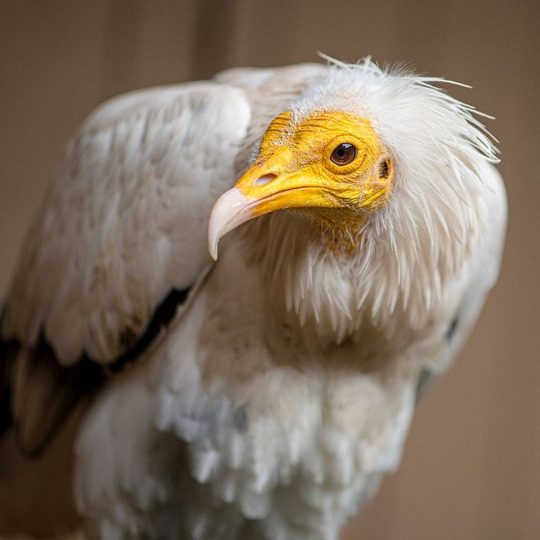#Red List of Ecosystems
Explore tagged Tumblr posts
Text

Is a Black-Footed Ferret Producer, Consumer, or Decomposer? 3 Roles Explained! Searching for safe chew alternatives for ferrets to prevent boredom? Explore our top 7 picks that'll entertain your furry friend for hours. Discover fun solutions now!
#is a black footed ferret producer consumer or decomposer#black-footed ferret diet#endangered species conservation#prairie ecosystem#keystone species#Mustela nigripes#wildlife roles#ecological balance#IUCN Red List#habitat preservation
1 note
·
View note
Text
Trying to keep your footprint as low as possible is a great way to self-destruct.
And I'm not saying this to people who take two hour showers during international flights while shoving red meat into their mouth. I'm saying this to my fellow activists who feel conflicted about heating their home on fossil fuels even though they don't have any other options (and struggle to afford it).
Like, we can talk about how 'consumer choice' is never going to save the planet and stuff, but more importantly: You are not a sin. Your basic needs deserve to be met. You deserve to be warm and filled with food that satisfies you and you deserve to see your friends.
We are not fighting to save 'the planet', that's a piece of rock. We want to save ecosystems and plants and animals, including people. You are part of that. Don't leave yourself out of the list of creatures that deserve to thrive.
25K notes
·
View notes
Text
Once on the brink of extinction, rare Mediterranean monk seal populations are rising, thanks to conservation efforts.
The Hellenic Society for the Study and Protection of the Monk Seal, known as MOm, is a charity dedicated to the care and protection of these rare marine animals.
Nearly half of the world's estimated 800 Mediterranean monk seals live in Greek waters, where the extensive coastline offers an abundance of sea caves that provide shelter for females to rear their young.
The rare seals are the only seal species in the Mediterranean. They have big, round eyes, prominent whiskers and are remarkably fast in the water...
In the twentieth century, habitat deterioration and destruction, as well as deliberate aggression from fisherman has caused a drastic population decline, prompting the International Union for Conversation of Nature (IUCN) to classify them as 'critically endangered'.
The population had decreased so dramatically that at one point the species faced extinction.

Pictured: Panagis is one of dozens of monk seals nursed back to health by the Hellenic Society for the Study and Protection of the Monk Seal, known as MOm.
How conservation efforts are changing their fate
Dr Alexandros Dendrinos, a marine biologist and coordinator at MOm, explains that the Mediterranean monk seal is "one of the rarest species of seal and marine mammal in the world."
"To protect an animal like the Mediterranean monk seal in its natural environment, you essentially have to protect the entire marine ecosystem,"
MOm is the only centre of its kind in the region, and has cared for around 40 seals both on location and at its facilities.
They respond to members of the public who find an animal in distress, aiding adult seals on-site when possible and bringing young seals, like Panagais, to the rehabilitation centre at Attica Zoological Park in Athens.
The young seals receive veterinary care, specialised nutrition, and swimming practice.
They are often named after those who found them, but human interaction is kept minimal to ensure their successful reintegration into the wild.
Once they have reached a healthy weight and developed natural hunting instincts, they are tagged for tracking and reintroduced to their natural habitat.
"This year, we had a really pleasant surprise," Dr Dendrinos shared.
A female seal they rehabilitated and released four years ago was recently spotted nursing her own pup.
Conservation efforts have yielded significant results as the species moved from critically endangered to endangered on the IUCN Red List and, in 2023, improved even further to vulnerable.
-via ABC Australia, March 12, 2025
#seals#monk seals#seal#sea life#wild animals#marine biology#marine life#marine animal#sea creatures#conservation#endangered species#greece#europe#good news#hope
1K notes
·
View notes
Text
As well as intense human suffering, Russia’s attack has had a catastrophic effect on the environment. According to the World Wildlife Fund (WWF), more than 3m hectares of forest have been affected, including 1m hectares in protected areas. Russian troops have dug trenches, felled trees and planted countless mines. Fires caused by shells have increased CO2 emissions. Giant clouds of smoke can be seen billowing next to a 600-mile-long frontline.
Some of this destruction is accidental. But there have also been extraordinary acts of large-scale Russian sabotage. In June 2023 the Russian military blew up the Kakhovka reservoir to thwart a Ukrainian counter-offensive. The explosion released more than 14 cubic kilometres (14tn litres) of water, flooded dozens of settlements downstream and killed at least 35 people. Ukraine’s president, Volodymyr Zelenskyy, said it was a “deliberate and calculated crime”.
The flood killed animals and swept away a fish farm that was trying to restore endangered sturgeon to the Dnipro River. Unique species were lost. In August 2024 there was another ecological disaster when suspected Russian soldiers dumped chemicals from the Russian border village of Tyotkino into the Seym River. The pollution crossed the international border nearby and made its way into Ukraine’s north-eastern Sumy region. The Seym’s ecosystem crashed.
Ukrainians agree that the damage caused by Russia to the environment cannot be easily fixed. Dr Bohdan Vykhor, the executive director of WWF Ukraine, said: “We have lost some parts of nature for ever. It’s impossible to return. It’s objective reality, unfortunately.” Vykhor said it would take many decades and “tremendous effort” to de-mine Ukraine, one of the most densely mined countries in the world. “Until fighting stops, we can’t begin. It’s dangerous,” he said.
The war has destroyed many important habitats for wildlife. Several rare species have suffered, including the red-listed marbled polecat. The Kakhovka flood washed away its breeding areas, Vykhor said, adding: “We can’t say if these creatures still exist in Ukraine.” Meanwhile, Russian soldiers have built military camps on coastal reserves and crucial wetlands used by birds along the Black Sea. The elusive black stork has changed its spring migration route, Vykhor said.
471 notes
·
View notes
Text
hi! welcome to my sideblog where i will Making your fav in Mii Maker™.
who are you?
i am simply a lover of miis. i go by a handful of different names but you can just call me pants! (she/her 🏳️⚧️)
why are you? (doing this)
mii making has been a lifelong passion of mine and after getting interested in @making-you-in-spore's posts and the "making you" ecosystem broadly it felt only fitting to throw my hat in the ring. as nintendo's support of miis has dwindled over time, the niche of mii making blogs has also dwindled, and somebody has to pick up the slack! maybe things will change with the new tomodachi life game and the switch 2 over the horizon, who knows! regardless, i will always shoot for the miis. my allegiance is unwavering.
what are you? (making)
let me make one thing very clear: i will not be using the "makeup" mechanic of the miitopia switch port. no shade to anyone who uses it, ive had a lot of fun with it too! i just have more fun with the limitations of the wii u/3ds mii maker. ever since the miitopia switch port came out it feels like miis made with the makeup have gotten a lot more attention, and somebody has to rep the classic miis! also, while i do have the full capability to port screenshots from my various mii making devices to my phone/computer, idk if ill feel like it. its up to chance if ill have the nerve. itll probably just be pictures of my 3ds screen taken on my phone the vast majority of the time
how are you?
im doing pretty good thanks for asking
are you taking requests?
yes! ive been mii making for so long that it comes pretty naturally to me (mii hehe) so i think i should be able to make them pretty fast. also for the most part ive already made miis of my favorite characters, so theres a good chance if you ask ill already have made something youre looking for! go obscure! go wild! i might even import it into some mii related game if i feel like it! no promises though! thats hard work!
generally i make whatever asks interest me the most first but i promise i will get to your request eventually! it just so happens that eventually can be a long time i am only one woman and i have many mouths to feed like a mother bird feeding baby birds miis from her mouth. be patient and you will have your wishes fufilled
is there a list of all the miis youve made?
yes! on second thought im putting big red text here to make this stand out more
what is your banner/pfps?
my pfp is a picture of my mii taken from pikmin bloom, i just found it in my camera roll on a whim when i went looking. my banner is a picture of my son Nubby from Nubby's Number Factory i didnt have any part in the games development i just feel strong maternal instincts towards him. image taken from tomodachi life, ill update this later with his outfit and room names


thats all for now!
ill probably get around to putting some of my proudest miis here eventually as a kind of portfolio but for now... the foundation has been laid... mii making is all that remains.
152 notes
·
View notes
Text
Here Are My Top 10 Favourite Ants
(Updated due to public outcry and political pressure.)
No. 10 - Yellow Crazy Ants

These guys are on a list of "one hundred of the world's worst invasive species" formulated by the International Union for Conservation of Nature (IUCN), having invaded ecosystems from Hawaii to the Seychelles.
But don't hate just because they are awesome at establishing themselves in a new habitat due to their aggression toward other ant species, lack of aggression toward members of their own species, efficient recruitment, and large colony size. Respect the hustle!
No. 9 - Paraponera Clavata

Also known as the "bullet ant," "the one wounding deeply," or "24-hour ant", referring to the full day of pain that follows being stung.
This ant's sting currently ranks the highest of all insect stings on Justin O. Schmidt's informal sting pain index, at 4.0+. Some victims compared the pain to that of being shot, (hence the nickname,) with "waves of burning, throbbing, all-consuming pain that continues unabated for up to 24 hours."
Lymphadenopathy, edema, tachycardia, and fresh blood appearing in human victim feces are common symptoms from even a single sting.
Un-fuck-with-able.
No. 8 - Honeypot Ants

The name honeypot ant comes from the peculiar development of replete workers, whose abdomens become so swollen with food that they are used by the rest of the colony as living food storage. They are "drained" during famine, usually the wintertime, to sustain the colony, leaving them as "flaccid depletes."
Disgusting. 10/10
When a replete worker fills with food, a portion of her digestive tract swells and displaces other abdominal organs. It can expand about four to five times its normal linear dimension when they are fully engorged with food.
I can relate. I have eaten pasta in such quantities to displace my own organs many times.
No. 7 - Red Imported Fire Ants

Though South American in origin, the red imported fire ant has been accidentally introduced to many other parts of the world.
More than 14 million people are stung by them in the United States annually. Most victims experience intense burning and swelling, followed by the formation of sterile pustules, which may remain for several days. Up to 6% of people may suffer from anaphylaxis. More than 80 deaths have been recorded from red imported fire ant attacks.
These ants thrive in urban areas. Nests can be built under pavements and foundations. This means not only can they damage or destroy individual structures, but red imported fire ants can have an affect on broader infrastructure, damaging land, business and property values. In agriculture, they can damage crops and machinery, and threaten pastures. They also pose a threat to animals and livestock, capable of inflicting serious injury or death, especially on young, weak, or sick animals.
With annual damages estimated in the billions of dollars, these ants are considered the second worst thing to arrive on North American soil since 1492.
No. 6 - Black Garden Ants

When building their colony, these ants will structure it so as to inhibit the transmission of different contagions. Different communities within the colony are segregated by a limited number of connective nodes, allowing for greater protection of vulnerable hive members, such as larvae and pupae.
A trait I could only wish other species performed so well.
No. 5 - Pharaoh Ants

These ants utilize three types of pheromones. One is a long-lasting attractive chemical that is used to build a trail network. It remains detectable even if the ants do not use the trail for several days.
The second pheromone is also attractive, but will decay to imperceptible amounts in a matter of minutes without reapplication. This pheromone is useful in marking food sources as these are unpredictable and liable to change quickly, so not worth the longer-lasting pheremone.
The third pheromone is a repellant. If an individual finds an unprofitable area with little food or significant danger, it will release this repellant pheromone, which will warn others and cause them to look elsewhere. While positive pheromones indicating lucrative foraging sites are very common in social insects, the pharaoh ant's negative pheromone is highly unusual and pharaoh ants were the first species found to employ such a thing.
No. 4 - Argentine Ant

This species is like the Mr. Worldwide of ants. It has established itself in every continent except Antarctica (including many oceanic islands.)
It even has "supercolonies" that extend across hundreds or thousands of kilometers, first reported in California in 2000, then in Europe in 2002, Japan in 2009, and Australia in 2010.
Several subsequent studies used genetic, behavioral, and chemical analyses to show that supercolonies on separate continents actually represent a single global supercolony.
The researchers stated that the "enormous extent of this population is paralleled only by human society."
How can you not admire (and fear) the ambition and the achievement?
No. 3 - Leafcutter Ants

"Leafcutter ants" is a bit of an umbrella term, as it consists of over 45 ant species, but this gang is just so remarkable. Next to humans, leafcutter ants form some of the largest and most complex animal societies on Earth. They are known for their advanced agricultural practices. These ants are not merely foragers but skilled farmers, cultivating their own food by collecting specific kinds of leaf matter in order to produce specialized fungi in their nests.
No. 2 - Formica Fusca

These ants, (sometimes called silky ants or dusky ants,) are fast to learn, and only a single presentation of stimulus is enough for them to form a genuine long-term memory. This formed memory is also resistant to extinction.
Ants of this species can also detect volatile organic compounds emitted by cancer cells. After a 3-trial conditioning, they can differentiate cancer cell lines from healthy ones. They can also differentiate between at least two different cancerous cell lines.
A similar ability to detect human tumours has been shown in more recent studies.
No. 1 - Weaver Ants

An arboreal species, (i.e. they live in trees,) weaver ants are known for their unique nest building behaviour where workers construct nests by weaving together leaves using larval silk. Colonies can be extremely large consisting of more than a hundred nests spanning numerous trees.
How they sew the leaves together is a remarkable feat of cooperation. Typically, dozens of ants will need to form a chain to first bridge a gap between two leaves, then pull them together so another team can hold them in position whilst yet more ants sew the gap together with silk. But adult ants can't make silk, so they have to use larvae to do it, picking the larvae up and using them like little pots of glue to spin a mat of silk between the two leaves. Altogether, a hundred ants might be involved in the same task. This is a pretty remarkable piece of evolution and a testament to the power of cooperation!

#ants#Myrmecology#bugblr#insectblr#bugs#insects#bug#insect#entomology#ant#antposting#invertebrates#antblr#parasites#parasitism#weaver ant#formica ant#leafcutter#bullet ant#fire ant
238 notes
·
View notes
Text
You know I could tolerate the Colossal Bioscience dire wolf bullshit if they were straight up about it, “these are grey wolves that we modified to look like the dire wolves from Game of Thrones”. Instead they’re peddling this blatant horseshit about “morphological species concept” to try and tell us no, these are REAL dire wolves and the woke science establishment just won’t admit it.
“Oh they’re just doing this for publicity so they can get real conservation work done”, great, can’t wait for their latest project, a gray wolf with red fur that is a “red wolf”. Sure it doesn’t fit the ecosystem or the niche but it looks like our concept of a red wolf and that’s the only thing that matters. Time to delete the Endangered Species List!
#dire wolf#dire wolf bullshit#science#colossal biosciences#if your idea of helping science is deleting the very concept of a species you’re not helping science
65 notes
·
View notes
Text
The nonfiction best-seller list in early 2018 included “Trumpocracy: The Corruption of the American Republic” and “It’s Even Worse Than You Think: What the Trump Administration Is Doing to America.” The cover of the former was emergency-alert red; on the latter, a map of the United States was bursting into flames. By comparison, the cover of another book, “How Democracies Die,” was somewhat muted—white capital letters on a black background. The word “DIE,” though, did loom large.
The anti-Trump books were received the way most information about Donald Trump is received. Those who hated him felt apoplectic, or vindicated; those who liked him mostly tuned it out. But “How Democracies Die,” by two political scientists at Harvard, was about a global phenomenon that was bigger than Trump, and it became a touchstone, the sort of book whose title (“Manufacturing Consent,” “Bowling Alone”) is often invoked as a shorthand for an important but nebulous set of issues. When a book attains this status, the upside is that it can have a wide impact. (In 2018, according to the Washington Post, Joe Biden “became obsessed” with “How Democracies Die” and started carrying it around with him wherever he went.) The downside is that many people—including those who are aware of the book but haven’t quite got around to reading it—may hear a game-of-telephone version of the argument, not the argument itself.
Trump’s first term lasted four years—no more, no less. The sun rose every morning and set every evening. The President made some wildly unsettling statements; he allowed his relatives to exploit their power for profit; he badly mishandled a pandemic; he threatened to nuke North Korea, or (reportedly) a hurricane, but in the end he didn’t do either of those things. Nor did he declare martial law, barricade himself inside the White House, and refuse to leave. In his final days, he did gin up a fleeting attempt at a “self-coup,” but he never had the judges or the generals on his side. By the time he left, many casual observers found it absurd to imagine that American democracy was dying. What would that even mean?
When Trump ran again, in 2024, his autocratic rhetoric was more pitched. He promised retribution, a purge of ideological enemies, and mass deportations on flimsy legal pretexts. His opponents called him a fascist, but this only seemed to backfire. “Look, we can disagree with one another, we can debate one another, but we cannot tell the American people that one candidate is a fascist, and if he is elected it is going to be the end of American democracy,” his running mate, J. D. Vance, said at the time. Vance had previously compared Trump to Hitler and to heroin, but his views, along with those of most Americans, had softened over time. This vibe shift was enough to get Trump reëlected, but it didn’t change the underlying threat.
For decades, scientists argued that rising carbon levels would cause an increasingly unstable ecosystem, but most people got only the game-of-telephone version. “We keep hearing that 2014 has been the warmest year on record,” Senator James Inhofe said, holding up a snowball on the Senate floor. “It’s very, very cold out.” The climate Cassandras hadn’t actually predicted the immediate end of winter. The slow-motion emergency they had predicted—melting permafrost, once-in-a-century storms appearing once every few months—was in fact happening, right on schedule. Still, no matter how dire the situation got, it was possible to normalize the damage. “No one’s denying it is unpleasant,” Laura Ingraham, the Fox News anchor, said in 2023. “My eyes are pretty itchy and watery.” That day, the air in midtown Manhattan was choked with acrid wildfire smoke from Canada, and the sky was a macabre shade of orange. “There’s no health risk,” her guest, a former coal lobbyist, replied. “We have this kind of air in India and China all the time.”
In a Hollywood disaster movie, when the big one arrives, the characters don’t have to waste time debating whether it’s happening. There is an abrupt, cataclysmic tremor, a deafening roar; the survivors, suddenly transformed, stagger through a charred, unrecognizable landscape. In the real world, though, the cataclysm can come in on little cat feet. The tremors can be so muffled and distant that people continually adapt, explaining away the anomalies. You can live through the big one, it turns out, and still go on acting as if—still go on feeling as if—the big one is not yet here.
The authors of “How Democracies Die,” Steven Levitsky and Daniel Ziblatt, were describing what political scientists call “democratic backsliding”—a potential descent into “competitive authoritarianism.” This is not what happened in nineteen-thirties Europe, when pluralistic republics suddenly collapsed into genocidal war machines. Nor is it what happened in late-twentieth-century Russia and China, which transitioned so quickly from totalitarian communism to autocratic capitalism that there was never much democracy to slide back from. It’s what happened in Turkey after 2013, in India after 2014, in Poland after 2015, in Brazil after 2019—countries that had gone through the long and difficult process of achieving a consolidated liberal democracy, then started unachieving it. “Blatant dictatorship—in the form of fascism, communism, or military rule—has disappeared across much of the world,” Levitsky and Ziblatt write. “Democracies still die, but by different means.” Some of this may happen under cover of darkness, but much of it happens in the open, under cover of arcane technocracy or boring bureaucracy. “Many government efforts to subvert democracy are ‘legal,’ in the sense that they are approved by the legislature or accepted by the courts,” the authors write. “They may even be portrayed as efforts to improve democracy.”
The first hundred days of Donald Trump’s second term have been enervating, bewildering, almost impossible to parse in real time. The Administration has used some degree of brute force to accomplish its aims, but it has relied more often on ambiguity, misdirection, and plausible deniability. Some of its actions have seemed comically paltry: coercing a government attorney to restore Mel Gibson’s right to a gun license; making the Kennedy Center “hot” again. Others may be haphazard power grabs, or may amount to something more. The Department of Government Efficiency, which is not a government department, declares that it will not allow condoms to be sent to Gaza, which actually means that it has cut off funding for health services in Mozambique. An eight-billion-dollar budget cut turns out to be an eight-million-dollar budget cut. Jeff Bezos smothers the editorial mission of the Washington Post, and Amazon commissions a forty-million-dollar documentary about the First Lady. Undercover agents arrest people for thought crimes. “We’ve had two perfect months,” the President says, moments after signing an executive order that reverses some of the signal achievements of the civil-rights movement. “Like, in the history of our country, no one’s ever seen anything like it.”
In their book, Levitsky and Ziblatt return many times to the example of Hungary. The first time Viktor Orbán was Prime Minister, from 1998 to 2002, he governed democratically. But by the time he won again, in 2010, he had recast himself as a hard-right skeptic of liberal democracy. Within a few months, mostly through legal means, his party, Fidesz, locked in its power and began reshaping the courts, the universities, and the private sector in its favor. Orbán is now the longest-serving Prime Minister in the European Union. Since 2011 or so, Hungary has been what is known as a “hybrid regime”—not a totalitarian dictatorship, but not a real democracy, either. There are no tanks in the streets; there are elections, and public protests, and judges in robes. But, the more closely you look at its core civic institutions, the more you see how they’ve been hollowed out from within. “The way they do it here, and the way they are starting to do it in your country as well, they don’t need to use too much open violence against us,” Péter Krekó, a Hungarian social scientist, told me in January, over lunch in central Budapest. “The new way is cheaper, easier, looks nicer on TV.”
We were in an Italian restaurant with white tablecloths, at a window overlooking a bustling side street—as picturesque as in any European capital. Krekó glanced over his shoulder once or twice, but only to make sure he wouldn’t be overheard gossiping about professional peers, not because he was afraid of being hauled off by secret police. “Before it starts, you say to yourself, ‘I will leave this country immediately if they ever do this or that horrible thing,’ ” he went on. “And then they do that thing, and you stay. Things that would have seemed impossible ten years ago, five years ago, you may not even notice.” He finished his gnocchi, considered a glass of wine, then opted for an espresso instead. “It’s embarrassing, almost, how comfortable you can be,” he said. “There are things you could do or say—as a person in academia, or in the media, or an N.G.O.—that would get them to come after you. But if you know where the lines are, and you don’t cross them, you can have a good life.”
Krekó has an office at the Budapest campus of Central European University, a couple of blocks away from the restaurant. It is a complex of multi-story buildings, sleek and strikingly modern. We passed through an angled glass foyer into a sunlit atrium full of blond wood and exposed brick. You didn’t have to be an architecture expert to get the message: openness and transparency. But, for a weekday afternoon, it was eerily quiet. “It’s sort of a ghost building,” Krekó said.
Soon after C.E.U. opened, in 1991, it became one of the most prestigious and well-funded liberal-arts universities in the post-Soviet world. The man who funded it, the Hungarian expat George Soros, was an ally of many young members of Hungary’s newly elected parliament, including a former pro-democracy activist named Viktor Orbán. The campus in Budapest was refurbished in 2016, in time for the university’s twenty-fifth anniversary. By then, though, Orbán was governing as a pugnacious ultranationalist. He had refashioned Soros as his archenemy, the personification of everything real Hungarians should reject: decadent globalism, open borders, “gender ideology,” a rootless cosmopolitan élite.
That same year, István Hegedűs, a former politician who had served in parliament alongside Orbán, read an article in a pro-Fidesz newspaper which implied that only the Party’s generosity enabled C.E.U. to stay in Budapest. A few days later, he attended a reception at the university, where, he recalled, he told an administrator, “ ‘You must interpret this to mean that you are in danger.’ But he said, ‘Who cares what they write in an article?’ ” C.E.U. was a private institution, accredited both in Hungary and in the U.S.; even if Orbán had wanted to meddle with it, he had no legal authority to do so. Still, Hegedűs told the administrator, “You are underestimating him.” Orbán’s populist rhetoric didn’t always line up with reality—while promising to uplift the working class, he and some of his closest friends seemed to have rapidly grown rich—and it was inconvenient when intellectuals pointed this out. Win or lose, a public spat with C.E.U. seemed to redound to his political benefit. An élite institution, full of foreigners and strange ideas, had taken root in his country’s biggest city, and he would not stand for it.
Like all semi-autocrats, Orbán picks more fights than he wins. For a few months, it seemed as though his broadsides against C.E.U. might be mere rhetoric. But, in 2017, Fidesz quietly passed an amendment to a law, placing new restrictions on international universities within Hungary. The amendment didn’t mention Soros or C.E.U. by name, but the school was widely perceived to be its sole target. The European Court of Justice ruled that this was a violation of E.U. law—three years later. But by then it was too late. C.E.U.’s academic operations had been transferred to Vienna, leaving a large number of students in limbo, and causing many of Hungary’s top scholars to leave the country. In the ensuing years, many of Hungary’s public universities came under the control of a set of private foundations—ostensibly a step toward modernization, but in practice a way for the foundations, which are said to be run by Orbán loyalists, to exert more influence over the country’s next generation of leaders. Beyond higher education, Fidesz used similar tactics in attempts to restrict international donations to N.G.O.s, and to force independent judges into early retirement. This year, Recep Tayyip Erdoğan, the competitive-authoritarian President of Turkey, took the unprecedented step of having his main political rival, the mayor of Istanbul, arrested. So far, Orbán has not resorted to such a move, but, then again, most of his reëlection campaigns haven’t been close.
Even now, there is still some plausible deniability. I had read about C.E.U. being banished from Budapest, and yet here I was, standing inside the building. A few American college students were passing through on a study-abroad tour. A display case was filled with recently published books; a polished-stone plaque was engraved with a quote (“Thinking can never quite catch up with reality”) attributed to C.E.U.’s founder and honorary chairman, George Soros.
The more I poked around, though, the more I saw indications that the institution had, in fact, been hollowed out—a Potemkin university with a sleek façade. A laminated sign, dated months prior, was taped to a locked door: “The PhD labs at the Budapest site will be closed.” An inviting rooftop terrace stood empty, except for some newly planted trees bending in a stiff wind. Inside, though there were still department markers on the walls (Gender Studies, Historical Studies, International Relations), many of the offices were either empty or littered with debris. I passed an office with a light on, and a young man at a computer looked up, clearly startled to see anyone. He politely explained that he worked for a video-editing startup, which was renting the office by the month.
At a café on the ground floor, where “Hotel California” was playing in the background, I sat with Zoltan Miklósi, a political philosopher who now commutes to C.E.U.’s campus in Vienna. “In the social sciences, they talk about the ‘just-world bias,’ ” he told me. “People want to believe that the world they live in, the system they live under, is mostly fair.” In 2015, one of his colleagues “made the case, very meticulously, that we no longer live in a democracy. I felt, ‘I cannot go there’—it seemed too extreme. But I had to admit that I couldn’t think of good counter-arguments.” This sort of discrepancy—the lag between intellectual acknowledgment and emotional acceptance—relates to one of Miklósi’s areas of research. “If I admit that I live in an autocracy, especially a ‘hybrid autocracy’ that functions by unpredictable rules, this raises a lot of other inconvenient questions,” he said. Many of a citizen’s fundamental decisions—whether to vote, whether to follow the law—presuppose a democratically legitimate state. “If that’s gone, then how am I supposed to live?”
I agreed that the hybridity was confusing. I could hardly make sense of the building I was in. If Orbán was so single-minded in his opposition to C.E.U. Budapest, then why not raid the building and put a “For Sale” sign on the door? If Hungary was an autocracy, then why were its critics still allowed to sit in the middle of the capital and say so? Miklósi suggested that this ambiguity was part of the point. Maybe, he said, if government ministers started to fear that his peer-reviewed articles were about to spark a revolution, “they would find a way to make my life unpleasant.” They probably wouldn’t jail him, but in theory they could subject him to smears in the state-aligned media, or make it difficult for anyone in his family to get a government job. He added, “For now, I guess, they don’t think I’m worth the effort.”
You hear the word “playbook” a lot these days. (The Guardian: “Trump’s weird obsession with the arts is part of the authoritarian playbook.” MSNBC: “Is the chaos that we have seen since Inauguration Day part of the playbook?”) Trump has never made a secret of his admiration for tyrants, and he frequently mentions Orbán as a model statesman. “These guys do seem to learn from one another,” Julia Sonnevend, a communications scholar at the New School who grew up in Hungary, told me. Trump’s son Don, Jr., went to El Salvador last June to attend the inauguration of that country’s despot, Nayib Bukele. Eduardo Bolsonaro, the son of the Brazilian semi-autocrat Jair Bolsonaro, was in Washington for Trump’s Inauguration in January (and was also there four years before, on January 6th).
If you’re looking for one master playbook, though, you may end up overemphasizing resemblances and downplaying distinctions. “One difference between Orbán and Trump is between suborning the state and blowing it up,” Anna Grzymala-Busse, a political scientist at Stanford, told me. Moreover, some parts of Trump’s program are escalations of preëxisting trends, not fundamental discontinuities. The corruption, the xenophobic nationalism, the ambient threat of decentralized violence—these may be more glaring now, but, whether we like to admit it or not, they have been present throughout American history. George W. Bush stretched Presidential powers well beyond their previous limits; Barack Obama expanded them even further. In the first hundred days of this term, Trump has issued the most executive orders of any modern President. There’s nothing inherently illegitimate about that. Some of these orders—declassifying documents related to the J.F.K. assassination, declaring English the country’s official language—have been divisive but have not obviously exceeded the President’s legal authority. Others, such as a ban on paper straws, have been mostly for show.
In other respects, though, this term already represents a sharp and menacing break. Executive orders such as the ones titled “Addressing Risks from Paul Weiss” and “Addressing Risks from Jenner & Block” are self-evidently cudgels for Trump to wield against his enemies—in this case white-shoe lawyers who have worked for his political opposition. (The orders could be read as prohibiting employees at these firms from entering federal buildings, including courthouses.) When the Bush Administration gave no-bid military contracts to Halliburton, of which Vice-President Dick Cheney had recently been the C.E.O.—or when the current Administration awarded contracts to SpaceX, whose current C.E.O., Elon Musk, is one of Trump’s top advisers—it certainly seemed like favoritism, but it was impossible to prove that any strings had been pulled. In Trump’s orders against the law firms, though, he is explicit that he is punishing them because of his antipathy to their employees (“the unethical Andrew Weissmann”) or their clients (“failed Presidential candidate Hillary Clinton”)—which appears to be a textbook violation of the First and Sixth Amendments. Turkuler Isiksel, a political theorist at Columbia, told me, “The sovereign openly picking winners and losers in the market—forget Orbán or Erdoğan. That’s something a seventeenth-century king would do.”
The Biden Administration, and even the first Trump Administration, justified deportations with arguments that had a chance of holding up in court. But this Administration has swept up putative gang members, some reportedly for nothing more than having a tattoo, and disappeared them to foreign prisons. Instead of bringing prosecutions, it has simply sent undercover officers to snatch legal residents—accused of nothing but disfavored political speech—off the street. “Dear marxist judges,” Trump’s homeland-security adviser, Stephen Miller, wrote. “If an illegal alien criminal breaks into our country,” the only due process “he is entitled to is deportation.” But this isn’t how the law works, even for non-citizens. As one expert put it, in 2014, “Anybody who’s present in the United States has protections under the United States Constitution.” The Marxist judge who said that was Justice Antonin Scalia.
Previous American Presidents signed orders knowing that they would be challenged in court. But some of Trump’s orders—one radically curtailing birthright citizenship, one banning transgender people from the military, and several more—seem facially unconstitutional. In the early days of this term, there was a lot of speculation about whether the executive branch might defy a direct order from a federal judge, and, if so, whether this would comprise a constitutional crisis. Then it happened, several times. In February, a federal judge ordered immigration officials to turn planes around, but the officials preferred not to. (“I don’t care what the judges think,” Trump’s border czar said. Trump agreed, posting, “This judge, like many of the Crooked Judges’ I am forced to appear before, should be IMPEACHED!!!”) In March, one district judge ordered the release of emergency-management funds that were being withheld from nearly two dozen states run by Democrats; in April, another judge ordered the government to halt its plan to decimate the staff of the Consumer Financial Protection Bureau. In written rulings, both judges expressed concern that the government was not complying with their orders. (“There is reason to believe,” one judge wrote, that Administration officials were “thumbing their nose at . . . this Court.”) Last week, the F.B.I. arrested a judge in Wisconsin and charged her with two felonies. Still, no matter how dire the situation got, some commentators kept saying that we were on the brink of a constitutional crisis, not already in one. Once you admit that you are in a constitutional crisis, it raises a lot of other inconvenient questions.
One morning in January, I took a car high into the Buda Hills to meet with David Pressman, who was then serving out his final days as the U.S. Ambassador to Hungary. We sat on settees in his official residence, next to a grand piano and a painting called “Sisyphus Smiling,” while the staff served us coffee in fine china. Pressman, previously a human-rights lawyer and the director of George Clooney’s Foundation for Justice, had done stints in Mogadishu and Khartoum before he was sent to Budapest. “I wanted to go somewhere, candidly, where democracy was in crisis,” he said. What he couldn’t anticipate was that he would be subject to unrelenting attacks in the state-aligned media, turning him into a nationally famous pariah. Before he arrived, in 2022, with his husband and their two children, someone rolled out a welcome banner on the Danube: a skull and crossbones, with the message “Mr. Pressman, don’t colonize Hungary with your cult of death”; during his stay, the pro-regime media mocked him constantly as an “L.G.B.T. activist” and a “full-time provocateur.”
“When you’re dealing with a state that has clearly dispensed with the traditional norms, it doesn’t work to just stick to the old ways,” Pressman told me. He was trying to break from the staid habits of diplomacy, but the impact remained unclear. The previous night, he’d announced that the U.S. Treasury had sanctioned one of Orbán’s top ministers, freezing his American assets. This was an unprecedented step—similar sanctions had been issued against government ministers in Russia, but not against officials in countries that are putative U.S. allies, such as Hungary—yet it was hardly a death blow to Orbán’s kleptocracy. The government treated it as more evidence of American animus, and the minister in question denied wrongdoing and shrugged it off. When I Googled his name, Antal Rogán, there were a few stories about the sanctions in the international press, but many more about “The Joe Rogan Experience.” (A few weeks after Trump was inaugurated, the sanctions were repealed.)
In an armored S.U.V. with a tiny American flag on the hood, we were driven to the American Embassy. Pressman met with civil-society leaders, saying his goodbyes. The Hungarian government had unveiled a mysterious new department called the Sovereignty Protection Office. “We don’t know yet if it’s just a publicity tactic, or if they are being given new surveillance powers,” Miklós Ligeti, from a nonprofit called Transparency International Hungary, said. “But our organization is under investigation by this office, so maybe we will find out.”
“I heard one of the ministers on TV this morning, stating, ‘After Ambassador Pressman leaves, he should avoid Hungary in the future,’ ” a representative from Human Rights Watch said.
“I won’t be following that recommendation,” Pressman said, with a wry smile.
“Well, bring a burner phone,” Szabolcs Panyi, an investigative journalist, said. It was gallows humor, but also good advice.
Each June in Budapest, Pressman hosted a Pride celebration on his lawn. The Hungarian government seemed to hate this, but there didn’t appear to be much it could do—there had been a large Pride parade in the streets of Budapest every year since 1997. Yet nothing in politics is static. Last month, the Hungarian parliament passed a law banning all Pride celebrations. Anyone disobeying the ban this June could be identified by the police with facial-recognition software.
Pressman recently moved back to New York and resumed his work as a partner at Jenner & Block, one of the law firms Trump has targeted with an executive order. (Unlike other firms, which cut deals with the Administration, Jenner & Block is fighting the order in court.) “Most Americans haven’t lived through a situation like this, so they have no idea what it means for powerful institutions to be captured by the state,” Pressman told me earlier this month. “They may assume they can keep their heads down for four years, make concessions, and then regain their independence on the back end. But history shows—and the Hungarian experience shows—that they would be mistaken.”
Castle Hill, on the west bank of the Danube River, is full of fortresses built during the Middle Ages. Tucked among them is a slender building constructed to include a five-hundred-year-old stone fortification. It houses the Danube Institute, a right-wing think tank funded indirectly by the Orbán government. In January, István Kiss, the director, invited me into his office, which was tastefully crammed with Impressionist-style paintings and leather-bound books. It was a busy time for him: he had been in Palm Beach for one of Trump’s Election Night victory parties, and he was invited back to Washington for the Inauguration, but he probably wouldn’t be able to go, because his wife was about to give birth. The government offers generous tax breaks to families with more than two children, a policy aimed at increasing the Hungarian birth rate, and this would be Kiss’s third. “Honestly, we might have stopped at two otherwise,” he told me. “But the incentives were quite appealing.” When he was a university student, he spent a week at the Mises Institute, a libertarian think tank in Alabama. “I discovered that I have some libertarian leanings, but my social conservatism is stronger,” he said. “The left is using the state for its purposes, so why shouldn’t we?”
In April, 2023, in a dungeon-like theatre space in the building’s basement, Kiss introduced an onstage Q. & A. with Christopher Rufo, a right-wing American activist who was in Hungary for a six-week Danube Institute fellowship. For years, Rufo had been pushing for an ideological overhaul of the entire American education system—a proposal that had once struck most politicians, even most MAGA Republicans, as a non-starter. But Rufo said that a version of this program was taking shape in Florida, where he was an adviser to Governor Ron DeSantis. It could be accomplished most directly at state-run institutions such as New College, where DeSantis had installed Rufo as a trustee. (Within months, the trustees had dismantled the gender-studies program and replaced the school’s president, a feminist English professor, with a former Republican politician.) Even when it came to private institutions, where DeSantis had less formal power, he still found ways to gain leverage—for example, by announcing that he would rescind tax breaks from Disney and, by extension, perhaps other “woke” corporations. “It’s essential to have someone that understands how to change institutions,” Rufo said, onstage in Budapest. He added that, during Trump’s first term, “the reality is that the institutions submerged Trump more than Trump reformed the institutions.”
When Trump returned to office, in 2025, he seemed determined to prove such skeptics wrong. Rufo, whose posts on X had caught Musk’s attention, went to Washington in early February, posting a photo from the Department of Education headquarters with the caption “Entering the inner sanctum.” (Rufo recently told me that he was an informal adviser to the Department of Education. A spokesperson for the department, when reached for comment, replied, “He does not advise DOE in any official capacity and should not be referred to as an advisor.”) Rufo told the Times that he hoped the government would withhold money from universities “in a way that puts them in an existential terror.” He didn’t have to wait long. On March 7th, shortly after Linda McMahon, the former C.E.O. of World Wrestling Entertainment, was confirmed as Trump’s new Secretary of Education, the Administration threatened to cut off four hundred million dollars in federal funds to Columbia University, citing campus demonstrations against Israel’s war in Gaza. Trump may have been eager to pick a fight with Columbia because it was the only Ivy League school in his home town, or because it was the school he most associated with anti-Israel protests, perhaps having seen so many of them on TV. In any case, if there is one thing the President understands, it’s how to seed a compelling media narrative: an élite institution, full of foreigners and strange ideas, had taken root in his country’s biggest city, and he would not stand for it.
On March 13th, the Trump Administration sent Columbia a letter that might as well have been a ransom note. Before the university could even discuss getting its money back, it had to implement nine new policies, including banning face masks and empowering campus security guards to make arrests. On March 21st, it acceded to nearly all the government’s demands. “Columbia is folding—and the other universities will follow suit,” Rufo wrote on X. He told me recently, “It has been happening, honestly, way more quickly than I anticipated. It’s beautiful to see.”
Previous Presidents have used incentives to goad private institutions, but no modern President has so openly used executive spending as an extortion racket. Eighteen of the country’s top constitutional-law scholars, both liberals and conservatives, wrote an open letter: “The government may not threaten funding cuts as a tool to pressure recipients into suppressing First Amendment-protected speech.” Yet the government has continued to do exactly that. (“President Trump is working to Make Higher Education Great Again,” a White House spokesperson told The New Yorker, in part. “Any institution that wishes to violate Title VI is, by law, not eligible for federal funding.”) Given how quickly some universities have capitulated, why wouldn’t the Administration use similar tactics to bully state governments, or Hollywood studios, or other entities that rely on federal money? Last year, Vance gave an interview to the European Conservative, a glossy print journal published in Budapest, in which he praised Orbán’s dominance of cultural institutions. By altering “incentives” and “funding decisions,” Vance added, “you really can use politics to influence culture.”
It will take a lot more than this to turn Columbia into a Potemkin university, or to drive it out of the country. C.E.U. was founded in the nineteen-nineties; Columbia was founded before the Declaration of Independence was written, and still has an endowment of more than fourteen billion dollars. In the coming months, though, smaller universities will surely be targeted, and some will presumably go bankrupt. (In February, with the stroke of a pen, Trump slashed the staff at two colleges run by the Bureau of Indian Education, and it barely made the news.) I visited Columbia earlier this month. Instead of passing through the main gate as usual, I had to stop at a checkpoint, where, between a couple of classical sculptures representing Science and Letters, some uniformed security guards waited to check my I.D. Two professors met me on campus. “They keep adding more of this Orwellian shit,” one told me, gesturing at a bulbous security camera above our heads. The other added, “After a while, unfortunately, you stop noticing.” One of them had studied democratic collapse in Europe and Latin America; the other was from India, where, under the competitive authoritarian Narendra Modi, academic freedom was under constant assault. Neither would say more, even off the record, until we walked away from campus to the edge of the Hudson River, where they would be less likely to be overheard or recorded. “It may seem paranoid,” one of them said. “But not if you’ve seen this movie before.”
The most influential independent media outlet in Hungary is a YouTube channel called Partizán, a name that evokes both advocacy journalism and anti-authoritarian resistance. It does its work not in the pine forests of Belarus but on the outskirts of Budapest, where it broadcasts from a soundstage in an unmarked warehouse. To get there one night, I walked past dilapidated brick buildings in an industrial area without sidewalks or street lights. My American street sense told me that I was about to get mugged, but in Central Europe it can be hard to tell the difference between imminent danger and shabby chic. Márton Gulyás emerged from the shadows and smiled, shaking my hand. “They filmed part of ‘The Brutalist’ in this parking lot,” he said, and led me upstairs.
In the studio, the mood was much warmer. Gulyás, Partizán’s founder and main anchor, took his place on set, wearing a hoodie, in front of a bank of vintage TVs. He had just finished moderating the channel’s flagship daily show—a two-hour live roundtable, analyzing the day’s news from a leftist perspective—and he was about to tape an interview with Ben Rhodes, who had been one of Barack Obama’s top foreign-policy advisers. I sat in a control room, where a few long-haired, effortlessly well-dressed employees made instant coffee. Partizán receives small donations from all over Hungary, and the control room was stocked with high-end equipment (a five-thousand-dollar video router, a cabinet labelled “HUMÁN-ROBOT INTERFÉSZ”).
Since 2010, the Hungarian media has been thoroughly compromised. There are a few news sites in Budapest that still do valiant investigative work, but most TV channels and newspapers with national reach essentially function as privately owned state propaganda. Again, though, the regime is careful to preserve plausible deniability. Unlike in Mexico or the Philippines, government agents in Hungary don’t kill or arrest hostile journalists. “They don’t walk into a newsroom and announce, ‘We are shutting you down because you published tough stories about us,’ ” Gábor Miklósi, a veteran investigative journalist (and the brother of Zoltan, the C.E.U. academic), told me. “They say, ‘This is the new owner, and the new owner has some ideas about how to improve the business.’ And the part they don’t have to say, but everybody knows, is that this new owner is an oligarch who happens to be very close to the Prime Minister.” For a decade, Gábor worked at Index, which used to be one of Hungary’s most reliable news outlets. After Orbán came to power, Gábor started to worry about editorial independence. But there wasn’t much meddling at first, he said, “so I convinced myself I should stay.” When he did start to notice some editorial interference, “it was mostly minor things”—a headline softened at the last minute, a story spiked for ambiguous reasons—“so you can never be sure. Maybe this particular case was a misunderstanding. Maybe I’m imagining things.” Around 2018, a company affiliated with Index was acquired by new owners, “lesser-known businesspeople tied to Fidesz oligarchs.” After this, the editor-in-chief was fired, and most of the editorial staff, including Gábor, resigned in protest. Now he works at Partizán.
Gulyás started Partizán in 2015, when he was an avant-garde theatre director in his mid-twenties. He spoke directly to the camera, aiming for “satire mixed with activism—‘People, wake up! They’re taking our rights away, can’t you see that?’ ” He now considers this style cringeworthy and ineffective. “You can’t just raise awareness, every day, every hour, about some new fucking emergency,” he continued. “Maybe it is an emergency, but if you keep saying only that then people stop listening.” The director of the Hungarian National Theatre, an outspoken critic of the government, was replaced, which became front-page news. (In Hungary, the director of the national theatre is a celebrity.) Gulyás led a series of protests. In 2017, he went to Castle Hill with a bucket of paint, prepared to throw it on the Presidential palace, and was arrested. But, when the government put him on trial as a threat to national security, Gulyás became a cause célèbre on social media. “They did not make that mistake again,” he said. “Now, when they want to put pressure on us, they do not do it so publicly.”
Tax officials have inspected Partizán’s financial records more than once, ostensibly for routine reasons. “We just tell them, ‘Here are our books, we have kept them very carefully for you,’ ” Gulyás said. He is gay, and government-aligned tabloids often spread baseless rumors attempting to associate gay people with such things as pedophilia. “I am a boring person, actually,” he told me. “But they could use anything—a picture of me sitting in a restaurant near someone who later turns out to be a bad guy—and make it look like a conspiracy.”
The fact that Partizán broadcasts online limits its reach, but also limits the government’s leverage over it. Its videos often get hundreds of thousands of views—a big deal in a country of some ten million people. In the last election, when Orbán’s main challenger couldn’t get airtime on TV, he put his message out on Partizán; the current opposition candidate gained widespread attention through an interview with Gulyás. The anchor now occupies a unique status—something like Hungary’s Rachel Maddow, Amy Goodman, and John Oliver rolled into one. The American media is far more robust than the Hungarian press, but there have been early signs of trouble. The Washington Post and the Los Angeles Times pulled their Presidential endorsements last year; Trump filed frivolous lawsuits against ABC News, which quickly settled, and CBS News, which initially vowed to fight but now seems poised to settle. The First Amendment still offers broad protections, but, even if you have the law on your side, there are plenty of incentives to avoid a confrontation with the President. This is especially true when the President seems willing to engage in extralegal tactics, such as selective audits, retributive regulation, and harassment campaigns carried out in the parts of the media that are already loyal to him.
Gulyás lives in an upscale bohemian neighborhood of Budapest, and one night he had me over for a long dinner. His boyfriend made osso buco and risotto; Gulyás put on a John Coltrane record and poured red wine, then made Negronis. Gulyás is considering a move to the countryside, where most Orbán supporters live; he can’t really understand his country, he feels, without spending time outside Budapest. But, for now, he is living the urban dream. “They say that Hungary is the poster child for the failure of the Enlightenment project,” Gulyás said. “But I will stay in this country until the last possible moment.”
Some people, of course, see Trumpism not as a democratic emergency but as a triumph of democracy. Recently, when Vance told a Politico reporter that the President may end up defying the Supreme Court, he portrayed this as an effort not to subvert democracy but to improve it: “If the elected President says, ‘I get to control the staff of my own government,’ and the Supreme Court steps in and says, ‘You’re not allowed to do that’—like, that is the constitutional crisis.” David Reaboi, a right-wing operative who has been an adviser to American and Hungarian politicians, told me, “The Venn diagram of the people who think Orbán is Hitler and Trump is Hitler is a circle, and it’s made up entirely of people who are out of their minds. Saying ‘Hungary is for Hungarians’ or ‘America is for Americans’ is a tautology. Who else would it be for? I don’t understand why anyone would have a mental breakdown over it.”
Some constitutional scholars still maintain that hair-on-fire rhetoric about the demise of the republic is counterproductive. “Look, Trump was elected democratically, and I don’t see anything that suggests that future elections will not be as democratic as previous ones,” Michael McConnell, a professor of constitutional law at Stanford, told me. “Some of what he’s attempting to do is unlawful, and he exaggerates it to make it sound even scarier than it is, but the likely end result is that he will be checked by the courts.” Andrew Jackson, McConnell went on, also had “authoritarian instincts.” Franklin Delano Roosevelt fired civil servants for ideological reasons, attempted to pack the Supreme Court, and—violating precedent, though not the Constitution—won a third term, and then a fourth. The Biden Administration also overreached, McConnell told me; it just did so more quietly. One thought experiment McConnell likes to float: if a President were bending the rules on behalf of policies you liked instead of policies you deplored, how much would it bother you? “It’s just a talking point of the left,” Tom Fitton, the head of a right-wing group called Judicial Watch, told me. “If they’re not getting their way, democracy’s at risk.”
The exact steps from the Hungarian playbook cannot be replicated here. They started with Orbán’s party winning a legislative super-majority, which it used to rewrite the Hungarian constitution. In our sclerotic two-party system, it’s become nearly impossible for either party to sustain a long-standing majority; and, even if Trumpists held super-majorities in both houses of Congress, this wouldn’t be enough to amend the Constitution. “All those veto points in our system, by making it so hard to get anything done, may have helped bring about this autocratic moment,” Jake Grumbach, a public-policy professor at U.C. Berkeley, told me. “Now that there is an autocratic threat in the executive branch, though, I have to say, I’m glad those checks exist.” For years, Samuel Moyn, a historian at Yale, argued that liberals should stop inflating Trump into an all-powerful cartoon villain—that he was a weak President, not an imminent fascist threat. But in March, after the disappearance of the Columbia student activist Mahmoud Khalil, Moyn applied the F-word to Trump for the first time. Still, he insisted, “Even at the most alarming and dangerous moments, politics is still politics.” All talk of playbooks aside, an autocratic breakthrough is not something that any leader can order up at will, by following the same ten easy steps.
In 2002, Levitsky and another co-author, the political scientist Lucan Way, wrote a paper called “Elections Without Democracy: The Rise of Competitive Authoritarianism.” Way recently told me, “When people would predict, ‘America will turn into Hungary,’ I would roll my eyes. But, boy, have I been humbled.” This February, Way and Levitsky published a piece in Foreign Affairs. “Democracy survived Trump’s first term because he had no experience, plan, or team,” they wrote. “U.S. democracy will likely break down during the second Trump administration, in the sense that it will cease to meet standard criteria for liberal democracy.” What Americans are living through now may feel basically normal, Levitsky told me—“Trump hasn’t brought out the tanks. Schumer’s not in prison”—but, he said, this is the way it often feels, even after things have already spun out of control. When I spoke to Way, he mentioned the capitulation of top law firms (“disastrous”), and the shambolic response from Democratic Party leaders (“utterly depressing”). Trump recently told NBC News that he was considering staying in office for more than four years, then clarified that he was “not joking.” Way wouldn’t even rule out the possibility that he might succeed. “Right now,” he said, “I think the U.S. is no longer a democracy.” He meant that we were seeing democratic backsliding, not a totalitarian dystopia. Still, when he said those words, I felt the way Zoltan Miklósi must have felt a decade ago. The conclusion sounded extreme, even if I couldn’t entirely refute it.
One paradox of strongmen like Bukele and Modi is that their anti-democratic maneuvers have made them genuinely popular. Break enough bureaucratic logjams, through either ingenuity or thuggish intimidation, and people may celebrate you as a man of action. It’s too early to tell whether Trump’s frenetic approach will be good or bad for his approval rating, but it is impossible to deny that he has been a man of action. The central tenet of competitive authoritarianism, though, is that an autocrat, even one who has already stacked the deck, can still lose. In Poland, the Law and Justice party entrenched its power, following the Hungarian model—but it pushed too far, notably with a series of unpopular anti-abortion measures, and, in 2023, lost its majority. In Brazil, in 2022, Jair Bolsonaro, the “Trump of the tropics,” tried to rig his own reëlection, but all his efforts failed, and he will soon stand trial for conspiracy to overthrow the government. Rodrigo Duterte, of the Philippines, who once seemed invincible, was arrested in March and brought to The Hague. There will be elections in Hungary next year, and Orbán, for the first time in decades, is facing a formidable challenger. Right now, the polls are tied.
Nothing in politics is permanent, and nothing is inevitable. The scholar Timothy Snyder warns against “anticipatory obedience” to tyranny, and fatalism can be its own form of capitulation. Even a gutted democracy can always come back from the dead. “In that sense, ‘How Democracies Die’ is actually a terrible metaphor,” Levitsky told me. “Everything is reversible.” In these frantic days, he sounds like both a Cassandra and a Pollyanna, sometimes simultaneously. “We are not El Salvador, and we are not Hungary,” he said. “We spent centuries, as a society, building up democratic muscle, and we still have a lot of that muscle left. I just keep waiting for someone to use it.”
When a graduate student whom I’ll call Noémi moved to the U.S., in 2018, she thought it would be a refuge from what was happening in her native Hungary. She had read enough history to understand that America wasn’t perfect. “I knew about the McCarthy era, and the tensions after 9/11,” she said. “But all the things you hear about the First Amendment and the legal protections for speech—somehow I still thought that meant something.” She is a Ph.D. student living in New York. Although she has a green card, she asked me not to use her name; if the State Department tries to kick students out, university officals may not be able to protect them. Her grandfather has late-stage cancer, and she isn’t sure she’ll be able to visit him in Hungary before he dies. “I told my partner, ‘I’m not a criminal, I’m not even an activist—why shouldn’t I go?’ ” But her partner sent her news article after news article: a German green-card holder arrested at Logan Airport and sent to a detention facility; a French scientist denied entry after anti-Trump messages were discovered on his phone. For now, Noémi is “frozen in place. Scared here, but also scared to leave.” She’s already considering where she will go next, if she has to go.
Last month, when a newspaper published a photo of a campus protest, an international student appeared in the background. She wasn’t there as a protester—she was just walking by—but knowing that her face was visible in the photo caused her to go into hiding for two weeks. I heard about another student, a Palestinian with a green card, who hadn’t left his apartment since March 8th, the night Mahmoud Khalil was taken; his friends were bringing him food, and he was using light-therapy lamps to regulate his sleep. A Ph.D. student whom I’ll call Divya told me that she left India in part because of academic repression under the Modi government, and she now lives in New York on an F-1 visa. Some of her friends, she said, “won’t use credit cards, in case they’re being tracked.” Among her friends who teach undergraduates, she added, “the new fear is that if you have a student who’s a citizen, and they don’t like what you say in class, maybe they’ll report you and get you deported.” Meanwhile, her neighbors go about their lives—shopping at Whole Foods, picking up the dry cleaning, then going home to catch up on the news and curse the latest Trump outrage, as if it were all happening somewhere else. For most of us, the sun still rises in the morning and sets in the evening, even as some of us now have to use L.E.D. lamps to substitute for natural light.
Turkuler Isiksel, the political theorist at Columbia, met me in her office, where the Declaration of the Rights of Man was framed on a wall. On her desk was a plush dog adapted from a meme (the one where the dog sits in a burning room saying, “This is fine”). Isiksel grew up in Turkey, then left to study in the U.K., the U.S., and Italy before becoming a tenured professor and a naturalized American citizen. She told me, “I really thought, as a constitutional theorist, that no place has fully solved the problem of checking power and letting the people rule, but at least America has it figured out better than anywhere else. But maybe Madison was right—maybe constitutions really are just parchment barriers.” She considered saying something more pointed, but held her tongue—she had an upcoming flight to Istanbul, and she didn’t want to cause unnecessary trouble for herself or her family. I asked whether she meant trouble in Turkey, or trouble back in the U.S. “I don’t even know at this point,” she said.
62 notes
·
View notes
Text
We keep talking about media literacy, but it's actually something very difficult to put into practice in this very overcrowded F1 media ecosystem, especially for new fans. I thought it would be a good idea to put together a list of reliable sources to hopefully make this year's silly season easier to navigate.
Publications
Auto Motor und Sport (more commonly known as AMuS) - the German publication is arguably considered as the most reliable source for F1 news. Most other publications will very often quote AMuS as source.
Speedcafe.com - Australia's foremost motorsport website. Mat Coch, their F1 editor, has access to Daniel's management and was one of the first people to seek clarification from Daniel's team when the rumour that he would be replaced by Miami first cropped up.
Other reliable publications: Autosport, Motorsport, PlanetF1 (caution to be advised with PlanetF1 because very often, it just quotes sources like AMuS or tends to have a lot of clickbait articles), BBC F1.
Journalists
Chris Medland - Chris is a freelance journalist with permanent FIA accreditation. He usually writes for RACER.COM. In my opinion, he is the most reliable from the whole cohort of journalists on twitter. He may not always be the one to break a story, but if he tweets out about a rumour or story, this is pretty much confirmation that the rumour or story is true.
Nate Saunders - Nate writes for ESPN F1 and is generally considered to be the Ricciardo camp mouthpiece. However, this does not necessarily mean he is, at all times, privy to insider information from Daniel's camp. Look out for him quoting 'sources close to ...'
Thomas Maher - Thomas writes for PlanetF1 and while PlanetF1 is not the most reliable of publications, I think Thomas is a good source to follow on twitter as he is pretty good at reaching out to his sources in the paddock when it comes to seeking clarification on a rumour.
Erik Van Haren - the Dutch journalist writes for the Telegraaf. He has the reputation of being close to the Max & Jos Verstappen camp and was the first one to break the Christian Horner SH story. Therefore, anything he writes about Max or Red Bull can be more or less be relied upon.
Albert Fabrega - he is a longstanding reporter with great technical expertise and is considered as the go-to source for the Spanish/ Spanish-speaking drivers, especially Alonso. Though, caution to be exercised after the whole 'I cannot believe what I have just been told' thing he pulled last year.
Lawrence Barretto - Lawrence is a presenter for F1. He is one of my favourites in the paddock and from time to time, he will have some insider information when it comes to Daniel. He was the first one to report on Daniel's best lap at the Silverstone being good enough for the front row.
F1 Pundits
There is a whole host of characters who act as commentators or guests across a variety of international broadcasts over a race weekend (or some of them just hang around the paddock). Think Martin Brundle, Crofty, Karun Chandhok, Damon Hill, Jacques Villeneuve, David Coulthard, Eddie Jordan, Ralf Schumacher ...
Their opinions are invariably given a lot of weight by virtue of most of them being former drivers or World Champions, but fact remains that many of them have no insight into what's actually happening within a team. However, that being said, a few of them still have close relationships with some of the teams, for e.g., David Coulthard with Red Bull or Mika Hakkinen with McLaren and whatever they say about these teams could potentially be relied upon.
Caution ⚠️
Joe Saward - Joe is rather notoriously known for his Green Notebook column on his blog. The column is supposedly meant to provide titillating insider information about F1, but it more often ends up being a regurgitation of the rumours that have been floating around that week. He has more misses than hits when it comes to rumours and anything he says needs to be taken with a generous dose of skepticism.
Will Buxton - if you see Will tweet something out, please lock your phone and walk away. This is not to say Will doesn't know what's happening in the sport - after all, he was the first one to give any indication of the Lewis to Ferrari story, but he is too committed to playing the game of shit-stirrer for engagement. The unfortunate thing is, we're all too human and we all invariably for his game and we end up going into a downward spiral of 'what does he mean???' when he tweets something out...
#i should also point out how certain of these so-called commentators are highly biased#re danica and villeneuve#there is also the whole italian media side who usually reports on ferrari related news which im not aware about#please feel free to correct anything in the post or add any other useful information#i'd say happy silly season but ricnation has perpetually been in silly season since 2022#daniel ricciardo#information
255 notes
·
View notes
Text
Everybody Wants to Rule the World || Chapter 1
Agatha x Rio || Warnings: Violence, Smut for later chapters
Leave a review on Ao3!
(Listen along while reading)
Full playlist
Fic Masterlist
———————————————————————
Chapter 1: Westview

Mr. and Mrs. Hart took their nightly walk through their lovely neighborhood in Westview. The smell of an incoming storm was in the air. It was sharp and heavy, carrying a tightness within it. Mrs. Hart happily chatted with her husband of forty years about every menial thing throughout their day, finding contentment in the comfort of their lifestyle.
In the distance, she heart a meow.
She perked up at the sound, wondering if it was a neighborhood pet who escaped. Outdoor cats were banned by the housing association for their risk to the local ecosystem. The only felines allowed needed to be confined to a house.
“Oh, Arthur, we should-,” Mrs. Hart began.
“Absolutely not!” Arthur said, anticipating his animal lover wife’s reaction.
“Honey, don’t be so heartless. If we don’t find that cat, the animal control officers will.”
“What if it has tags?”
“What if it doesn’t? Remember when Mittens was taken? Diane had to jump through hoops to prove she was hers. They were a week away from putting that poor cat down!”
Arthur let out a heavy sigh. He knew that if they didn’t at least try and something happened to the cat, his wife would lose respect for him.
“Alright, let’s go,” he said.
Mrs. Hart visibly relaxed, giving a grateful smile to her husband. They set out to look for the animal. She cooed and made kissy noises to lure her out. They did not have to look far. Clear blue eyes glinted with moonlight. The white, long-haired cat sauntered out from a bush.
Mrs. Hart knelt down, baby talking to the cat as her husband noticed something on the pavement. Paw marks. Red paw marks. Mrs. Hart petted the friendly cat’s head before her eyes dropped to its legs. The bottoms were soaked in blood.
“Is she hurt?” she wondered aloud, carefully taking a paw and checking the pad.
“Any scratches?” her husband asked.
“None,” she said, looking up at him with her face draining of color.
“She’s Herbert’s, right?” he asked.
“Yes. Mittens,” she said, looking at the cat’s stained feet.
“Stay here,” he said.
“Arthur, wait! It might not be safe!” She said.
“Someone might be hurt in there. I’ll be okay,” he said, waving her off before thinking better of it, “If I’m not back in five, call the cops.”
Arthur walked up to the green front door, knocking on it before it slowly creaked open. He leaned in a bit to call out with his feet firmly planted in the doorway.
“Herb? We found your cat… you okay?” he listed for a minute, “Herb?! I’m coming in, so no need to ‘stand your ground’, okay?”
He carefully crept in. The house was completely silent and still. Shadows engulfed a leather sectional, mounted fish, and dozens of other items that made it clear the place hadn’t known the touch of a woman for quite some time. He looked around, seeing nothing out of place in the living room. Even though it was early in the evening, every light was switched off. Arthur hoped that he was just out at a friend’s place… and happened to keep his front door ajar. He heard a floorboard creak from the staircase.
“Herb! You here?”
He hurried to the stairwell and was met with nothing. He began climbing up before hearing a few muffled steps in the kitchen. He froze for a moment before walking back down. His heart thudded against his chest at the thought of what he would find. Perhaps his wife had been right.
He hoped against hope that he would find his neighbor of fourteen years puttering around his place, exhausted after a long golf game. After a few slow steps, he opened the kitchen door. The screen door to the outside squealed shut. The crackling of the autumn leaves sounded, only to grow distant as rain began to fall. Whoever had been there was now gone.
Rather than give chase with his bad hip, Arthur returned to the bottom of the stairs. He could just stop now. He could just call the police and have them check, but how would that make him look? The steps could’ve been a branch knocking against the wall. The door could’ve been opened and shut by the strong gusts of wind that were starting to kick up. He refused to be some loopy old man who overreacted to a strange situation.
Taking a deep breath, he ascended the stairs to the second floor. He was about to call out again, but knew it would be redundant given that Herb hadn’t answered before. Instead, he walked to the end of the hallway, passing pictures of Herbert’s late wife, their daughter, and their various pets throughout the years. His life had whittled down to just him and a cat now.
Time seemed to stretch as Herb reached for the doorknob. He finally turned it, revealing the fate of his neighbor. The stains that decorated the wall were angry and long from a violent struggle.
The dim streetlights outside illuminated the horrifying tableau. Frames on the wall were tilted or broken on the floor with smeared crimson streaking across them. A mahogany nightstand had been kicked over, leaving the lamp atop it in pieces. The forest green curtains had been torn down during whatever took place with dark stains where someone had clung to them. The rod they hung on was crooked against the wall after being yanked down.
The curtains unfortunately did not save Arthur from seeing the full extent of what Herb had endured in his final moments. He was sitting up on the floor by the window, his head tilted back and his mouth stretched open. His hazel eyes were bulging out, fixed on the ceiling above as if he were frozen in fear.
His body had been savagely vivisected. His chest and stomach had been cut. The cut was long, traveling down from the bottom of his belly up to his diaphragm. Whoever cut into it was messy. Several slices formed the wound as if the killer either didn’t have the care or the tool to completely open someone up in one go. They had grabbed each side of the cut and pulled it apart, opening his body to show Herb’s inner workings. It looked more like he had been attacked by an animal than a human being.
Arthur stood there dumbly, his brain refusing to process how this man he knew for over a decade was suddenly turned into nothing more than meat. He was jolted out of his stupor by a voice sounding from the front door.
“Arthur?! Are you alright?” his wife called.
“STAY DOWN THERE!” he bellowed.
“Why? What’s ha-“
“Call the police!”
—————————————————————
Agent Harkness downed a black coffee on the way to her next assignment. The bitter taste made her cringe, the grounds loose in there from her broken coffee maker. She had been called to a scene an hour and a half away following an urgent request by a small town chief who understood how in over his head he was. The town was one she had never heard of. Westview sat in Connecticut between Wilton and Ridgefield. Since it was a single killing in a single town, she would only be aiding the local police, so she figured it would be an easier situation than traveling states away. It especially helped that it was less than ninety minutes away from Longmeadow. For someone in her profession, that was a reasonable commute.
The neighborhood surrounded the taped off yard of Herb’s home. The neighbors craned their necks, trying to catch a glimpse of what was happening. Despite their supposed care of the dearly departed, they still had that morbid curiosity shared by humanity as a whole.
She stepped past the perimeter and into the yard. While it had been Westfield’s first murder since the seventies, Agatha had to admit that the local cops did well in securing the scene. She walked up to the front door where a man with an aggressive mustache greeted her.
“Agent Harkness? Hello, I’m Chief Jones,” he said.
“Hey, Chief. Nice to meet you. So, we have an intruder homicide here?”
The Chief nodded, shifting his weight uncomfortably. Despite his position, he had a self consciousness about him. Agatha was shorter in stature, but commanded any room she was in with a confident attitude. The two of them looked like a combined contradiction.
“…Could you take me through the scene?” she asked dryly after a few silent moments passed.
“Oh, right, sorry…” he sputtered out, stepping inside and guiding her up the stairs.
Agatha took in every minute detail she saw. Nothing was disturbed. Every frame was perfectly balanced. There were no signs of a struggle, no busted doorframe, no broken windows. The door was ajar, but the lock was in tact. The surgical precision of the break in was all a sharp contrast to the bloody scene in the bedroom. Even with everything Agatha had seen in her line of work, she was still stunned for a beat by the unexpected brutality of the kill. Maybe she hadn’t completely numbed herself to the darkness of the world.
“Geez… look at these cuts…” Agatha said, kneeling down.
Chief Jones winced and looked away, unable to keep his eyes on the carnage. Agatha, however, pushed through her own discomfort by treating it all like a puzzle. She leaned in, squatting just far enough to preserve any evidence on the body. Her attention was drawn to the jagged edges of the wounds
“This killer hated this man,” she muttered.
“Uh… How’dya figure?” the Chief asked.
“Look here,” she said, forcing him to face Herb.
He gagged before regaining composure. Agatha rolled her eyes. She took a pen out of her pocket and used it to point out the discoloration surrounding the wounds.
“See the swelling here? Only living tissue develops edemas like this. You can also see marks of active bleeding down the entire path of the injuries.”
“So… he was-“
“Alive through the entire thing.”
“Shit…”
“I know. This killer wanted him to suffer.”
They both straightened up, standing and facing each other.
“Did he have any enemies?” she asked.
“Herb? No. He was just a nice guy. Never bothered anyone.”
“Heard that before.”
“What?”
“Nothing,” she said with a shake of her head, “He definitely made at least one enemy. I would say it was a hired killer, maybe a business dispute, but this seems more personal than that. No professional would be this… emotional.”
“Someone who can do things like this can’t have feelings or regular emotions, can he?” the Chief asked.
“Rage is an emotion. A pretty strong one,” Agatha said before leaving to examine the rest of the house.
—————————————————————
Agatha made the long drive home while on the phone with her boss. She felt spent after not only seeing such a horrible scene, but also trying to keep an inexperienced police force calm while handling their first major crime.
“I don’t know how well this case is going to go if it all falls on them,” Agatha said.
“Well, that is why you are there to help. Keep them on track. If there are more victims across state lines, then you can take it off of their hands. In the meantime, be a resource.”
“Lilia, they have no idea what they are facing with this guy. The scene was…”
“Was what? You sound shaken.”
Agatha sighed, biting her thumbnail while resting her elbow on the driver’s window sill.
“It reminds me of Englewood,” she said.
“Oh, dear…”
There was a long silence on the other end of the line. Agatha began to drift off into her thoughts again until Lilia’s voice cut through.
“How similar is it?”
“The method of killing is different. A knife as opposed to blunt trauma, but something about it…”
“How about the victim?” Lilia asked.
“Elderly male.”
“The other was thirty six.”
“I know, I-“
“Agatha, I know you have your hunches, but I am failing to see a connection.”
“It was a perfect scene apart from the body itself. I mean… nothing disturbed or left behind. No prints, no hair, not even a discernible footprint. Everything was so skillfully done… except the kill itself.”
“Was the victim a mark?”
“I don’t know. It was so much more brutal than a hitperson would bother with.”
“Perhaps he was paid to torture him beforehand?” Lilia posed.
“Not like this. This body was hacked to pieces. He wasn’t tortured in the typical ways done by hired hands. The pursuit and escape were smooth and planned. The unsub left no fingerprints or DNA behind as far as we have found. But, the murder used excessive force and emotional drive. They allowed for a struggle that left blood everywhere. They didn’t try to hide the body or clean the room even though their own tracks were completely covered. It was a chaotic kill, but not an unplanned one.”
“So, disorganized during the kill but an organized killer in every other way?” Lilia said uncertainly, “And you think this could be someone who knew him? If it was, it is unlikely the same person killed someone states away in the same manner.”
“Maybe. I just feel like they must be linked. Maybe he doesn’t know them personally… maybe he hates them for what they are. Like how some killers hate mothers and kill older women, or hate their ex girlfriend and kill someone who looks like her.”
“Similar ages and types of people. These two… a young dentist and an old retiree? I don’t know, hun. It seems like a reach. You need more.”
“I know. I’ll let ya know if I have it,” she sighed.
“Agatha?”
“Yeah?”
“Get some sleep.”
Agatha let out a small laugh through her nose before hanging up. She mentally thanked the universe for the sleeping pills waiting for her at home.
Once she pulled into her garage attached to her ranch style house, she turned her car off. She got out, pressing the button to close the garage door and kicked off her boots. She could hear the soft noises of her pet through the door before she walked inside. Agatha smiled at the black and white rabbit waiting for her in an oversized enclosure she had built for it.
“Hello, Señor Scratchy!” Agatha cooed, her voice taking on a tone that only the rabbit would ever hear from her.
The rabbit jumped around happily like a kernel of popcorn at her arrival. She opened his enclosure and picked him up, hugging him close. She carried him as she checked the house. In her line of work with her own personal history, Agatha could never relax before checking every dark corner of her home.
She returned to the living room with him, setting him down on the floor to explore. She wandered into the kitchen while rolling her neck, groaning as it popped. She took the bottle of pills from a cabinet and took one out. She nearly reached for the wine, but could just imagine her friend Wanda scolding her about mixing the two. That woman was the only person apart from Lilia who could be that motherly toward her without getting an earful. Maternal figures had left such a bad taste in her mouth throughout her life.
She opted for water instead of wine and washed the baby blue sleeping pill down. She felt her thoughts beginning to blend together as it started to take effect. She was swaying on her feet by the time she was brushing her teeth. She watched as shadows seemed to shift in the room. One passed by the window and stopped for a minute, the dark outline falling over Agatha. She turned around and it moved away. Occasional hallucinations were a symptom of the medication, she reminded herself. It did little to ease her mind.
She squinted her eyes to see a soft outline of the word “hi” rubbed into the fog on her window, revealed by the frosty temperature drop outside. She shook her head, convinced it was her mind drifting to sleep before she had reached the bed. She clumsily stripped her clothing off, flinging each article in a different direction. She face-planted into her pillow before sinking into her mattress.
The next morning, she was jerked out of a deep sleep by her screeching alarm clock. She groaned, her limbs feeling heavier than usual. The meds had done their job almost too well. She stumbled to the bathroom with her eyes still closed and sat down on the toilet. As she peed, she looked up at the window and remembered the message from the night before.
After flushing, she looked at the pane of glass that was stippled with the morning dew. Instead of “hi” was a spot that looked like it had been wiped off by someone’s sleeve.
She rolled her eyes and smirked, knowing it was likely one of Wanda’s kids who often snuck into her backyard. They would write messages in chalk or the snow to say hello to Agatha when she was away for work. It was very sweet and meant more to her than she cared to admit.
A question of why Billy or Tommy had wiped it away flashed in her mind, but it was shooed away as she tripped over her bunny.
—————————————————————
“Where’d you get a black eye?” Chief Jones asked as she walked into the station.
“Where’d you get that stain on your shirt?” she calmly snapped back.
He looked down at his white shirt, noticing a few drops of brown from his coffee.
“Damn it…” he muttered, dabbing at it with his tie as if that was any better.
“So, were the witnesses interviewed?” she asked, sitting herself in a chair by his desk.
“Yeah. Sharon…”
“Who’s Sharon?”
“Uh, Mrs. Hart. She’s the wife of the man who found Herb,” he said as Agatha nodded and motioned for him to continue, “She told her husband, Arthur, to help her find a loose cat. The cat was Herbert’s. Mr. Hart approached the house. He didn’t see anything out of the ordinary in the house… apart from-“
“The corpse in the bedroom-“
“Uh, right. He found the front door open and went inside.”
“Which is when he found him,” she droned on, making an impatient circling motion with her hand.
“Actually, no.”
“Oh?”
“He heard something first. Someone in the kitchen. He went to see what it was and saw someone fleeing the scene.”
“What details did he give about the killer?” she said, sitting upright with more urgency.
“Uh… he said he didn’t see them. He saw the door close and heard his footsteps.”
“Damn…” she muttered before perking up again, “Wait… he was there and the killer just ran off?”
“Yeah, luckily.”
“Huh… the killer was really only there for Herb…” she wondered.
“I guess so. What does that mean?”
“I don’t know yet,” she muttered, “And his daughter?”
“Pepper? Oh, they don’t talk much.”
“Why not?”
“Eh, loss changes families. Y’know?”
“I do…” she said quietly before clearing her throat, “So they’re estranged, then?”
“Mhm.”
“Have you reached out to her?”
“She’s been notified. She said she doesn’t have interest in any of this.”
“Really?” Agatha asked with an arched brow, “Do we know where she was that night?”
“Yes. She was on the other side of the country vacationing in the Hamptons.”
“Wow… A rich alibi for a rich woman.”
“Yeah, she ended up working at a pretty big ad agency.”
“And she won’t fly back for her dead father? Herb must’ve done something to drive his only child away like that,” she said.
“Like I said, loss changes people.”
“Not like that, it doesn’t. Not so much that you don’t cut your vacation short if they get murdered,” she said, thinking back to when her own mother passed, “No, there is something deeper. Do you think she was abused?”
“By Herb?! No, the guy was a teddy bear. He was always so proud of her. He’d never do anything to her.”
“Thing is, Chief, a lot of people who terrorize their families seem like harmless people.”
“I knew the guy. No drinking issues, no bar fights, no cheating on his wife. I don’t think he ever even got a speeding ticket.”
“And Pepper?”
“What about Pepper?” Jones asked.
“Was she also a rule follower?”
Chief Jones hesitated a bit before saying, “Well, every kid goes through a rebellious phase.”
“And what did hers look like?”
“Just the usual stupid teenage mistakes. Getting drunk, caught with pot, fights with girls at school…”
“She got into fights?”
“Yeah. She would get pretty scrappy in the locker room when she was on the soccer team.”
“A temper issue?”
“Something like that. Girls fighting over a boy. Typical. Tale as old as time,” he said.
Agatha fought every instinct to bristle at that comment.
“Which boy?”
“Tony,” he said with a grimace.
Agatha took note of his reaction, unaware that the man was capable of showing such vitriol for one of his neighbors.
“Tell me about him.”
“Well, if you think Pepper was rebellious, he made her look like a saint. He was a bit of a heartbreaker. He was this little rich brat who would hold these wild parties and…”
“And what? Partying isn’t worse than fist fighting other students.”
“Well… Pepper always had bruises on her when she dated him. Herb hated him. Hell, I hated him. Everyone tried to reach her, but she never pressed charges.”
“Sounds like Tony had a reason for a grudge. When did they break up?” she asked.
“They didn’t. He’s with her in the Hamptons. Married for over twenty five years.”
“Geez. I’ll have someone look into their finances. If there’s anyone who could afford a hired gun, it would be them. I need to talk to them.”
“They aren’t answering any questions.”
“Tell them the FBI wants to speak with them. That usually lights a fire under people’s asses.”
—————————————————————
“Tony STARK?!” Lilia yelled over the phone.
Agatha flinched at the reaction.
“Yes, that Tony,” she said.
“You had better be sure to tread lightly here. This is a powerful and litigious family.”
“I always tread lightly.”
“Agatha, you tread with the weight of an elephant in steel-toed boots. Be. Smart,” Lilia scolded.
“I will be! I just need to look at them. They are the strongest leads we have right now. Like you said, they are rich and powerful, which means they have the resources to get away with murder. They also have anger issues and a grudge against our victim. Now, either Pepper is hiding something about why she wouldn’t speak to her father or her husband isolated her from him on purpose. Either way, we need to explore this.”
“Agreed, as much as I hate to say it. Ugh, there is going to be so much paperwork. I will try to get a warrant for the finances AFTER you speak to them.”
“That could give them the warning they need to move things around!”
“If they are masterminds who plan murders, they have already done that. This will go much better if you get an interview with them.”
“Fine. I will do everything possible.”
“Good. Call them.”
Lilia hung up and Agatha huffed out a breath. She retrieved their numbers and called them all, only to be sent to different answering services. She left messages with each one.
—————————————————————
After going through every detail of what they had, Agatha forced herself to leave for the day. She drove the hour and a half to Longmeadow while listening to a podcast and stopped off at the 24hr gym a few miles from her house. It wasn’t the fanciest gym, but it was the only one that was open after she worked half the night or when she couldn’t sleep.
She took her gym bag out of the trunk and walked inside, a handful cars surrounding her in the parking lot as the streetlights turned on. She changed into yoga pants and a sleeveless tee that hung loosely around her muscular form. She brought her bottle, put in her earbuds, and got onto an elliptical. As she exercised, she scanned the gym to take stock of her surroundings. She had made a habit of memorizing the people around her.
A mother and teenage daughter were on the other ellipticals, seemingly competing with one another in a friendly manner. There was an old woman on the exercise bike. Two high school boys were spotting each other on the bench, pressing weights with terrible form. She was watching them closely when a woman next to her got onto the treadmill.
She seemed younger than Agatha’s fifty three years. This woman was either in her late thirties or early forties. She had dark hair and prominent brown eyes. The irises were nearly black. Her mid length hair was pulled up into a ponytail that bounced as she ran. She definitely worked out. Though slender, Agatha could see abs and lean muscle given the sports bra and shorts she wore.
She looked away the moment she was caught staring, swallowing as she moved a little faster, pressing a button to raise the machine’s resistance.
She heard a muffled voice close to her. She looked around before her eyes fell on the woman next to her. Agatha tapped her earbud to pause it and took it out. She must have looked annoyed since the other woman looked apologetic.
“Oh, sorry! I didn’t know you were listening to something,” she said.
“Oh, no, it’s fine,” Agatha nearly stuttered out, “Uh, did you need the machine?”
“Oh, no,” she said, lightly panting as she jogged on the treadmill, “I’m new here and just wanted to introduce myself. I’m Alison.”
Agatha normally hated socializing with anyone outside of her tight friend group. Her resting bitch face normally warded people off. This woman seemed unaffected, though. That alone interested her.
“Agatha,” she said.
“Both A names. Weird coincidence,” Alison said with a smirk.
“I mean, maybe,” she said.
Agatha needed a plan of escape if this woman started talking about fate or, even worse, astrology. It was bad enough that Lilia used her birth certificate in her file to do her charts. She didn’t need someone else telling her that she was anxious or upset because “Your 8th house is in Saturn” or whatever the fuck.
“Yeah, I guess that’d be more impressive if our names started with X or something,” Alison joked, “Did you just get out of work?”
“Why do you ask?”
“Just curious… also, you’re wearing a watch.”
“Why does a watch give that away?” Agatha asked.
“The only people who wear watches are old or in a job where they can’t always be on their phone. Unless it’s a smart watch, people normally don’t carry them around.”
“Huh… forgot it was on,” she said, undoing the thick, men’s silver watch and slipping it around her water bottle.
“What do you do for work?” Alison asked.
“I’m a law enforcement officer,” she said.
“Oh, so the enemy, then,” Alison said, wiggling her eyebrows.
“Sorry?” Agatha asked.
“I work at a nonprofit that works with victims of police violence and I organize protests on the side. A lot of your boys in blue have caused their share of trouble.”
“Ah… yeah, I’m not one to defend dirtbags like that. I’m also not in blue. I’m a federal agent.”
“Ooh,” Alison said, clearly pretending to be impressed, “DEA? ATF? Immigration? What sort of people do you go after?”
Agatha scoffed at the baiting this woman was doing. While she was fully aware at the massive flaws in the system, she also didn’t appreciate being lumped in with all of the corruption due to her job title alone.
“Murderers. I work in homicide,” Agatha said tersely.
“FBI. Okay, I actually am impressed.”
“So glad to have your approval,” Agatha muttered, looking ahead as she kept exercising.
Alison sighed and said, “Hey, I’m sorry. That was really hostile. I’ve been told I can come off a little strong sometimes.”
Agatha slowed down and looked at her for a beat.
“Same,” Agatha said, “And that I’m off putting and too blunt, so I guess we have that in common.”
Instead of being offended like most people would, Alison let out a full body laugh. A small smile settled on Agatha’s face as well.
“I like you, Agatha,” she said.
“Thanks… you’re not terrible either,” she said, avoiding eye contact.
The two exercised quietly, only talking a bit during water breaks. Agatha appreciated how sarcastic and self assured Alison was. She also caught herself sneaking a few peeks at her while she ran. She couldn’t deny a slight attraction.
After an hour and a half later, the two of them made their way to the lockers. Agatha took her bag and slung it over her shoulder.
“You’re not showering?” Alison asked, already taking her shoes off.
“No, I live really close by.”
“Oh, well, I hope I see you later!” she said, “Never thought I’d want to spend time with a cop— well, Federal Agent.”
“I never thought I’d want to spend time with a bleeding heart, but here we are,” Agatha retorted.
“Bleeding heart? You make me sound soft,” Alison said with fake offense, dropping her register to a goofy creepy voice, “No, I have a tough, black heart.”
“A bleeding black heart?”
Alison laughed again, winking at her. Agatha knew from the warmth in her cheeks that she was blushing.
“See you around, Black Heart,” Agatha said.
“See you around Officer,” Alison teased before walking deeper into the locker room.
Agatha found herself smiling as she walked back to her car.
Fic Masterlist
#agatha all along#agatha harkness#agathario#rio vidal#agatha x rio#kathryn hahn#aubrey plaza#marvel#lgbtq#fanfic#fanfiction#fan fiction#writing#mystery#horror#detective#detective agatha harkness#wanda maximoff#wandavision#tommy maximoff#billy maximoff#lilia calderu#agathario fanfic#agatha harkness x rio vidal#sharon davis#mrs hart#Spotify#playlist fic#agathario au
87 notes
·
View notes
Text
Magical Correspondences 101
So I figured I should put all of my stuff on correspondences in one place for convenience's sake, since having them spread in a bunch of short posts isn't really helpful if I need to link them. Anyway, for those of you getting into magical correspondences, here's what I've got!
So, what are correspondences?
A lot of modern witchcraft operates on the belief that things like stones, plants, colors, and so on have certain metaphysical properties. Why do they have these properties? There are multiple explanations. Sometimes the properties are supposed to be innate. Sometimes they supposedly exist because the object in question is a symbol for something else. You'll find that many spells combine these two ideas, such as using an herb because of its inherent properties it's believed to have, then also using a flower because it's a symbol of a deity.
(Will it hurt anything to mix these concepts? Personally, I don't think so. Spiritual beliefs and metaphysical models are often messy, and occasionally contradict each other. I've never really seen it hurt anything.)
If you search around, you can easily find charts that describe various properties associated with various things. People sometimes assume that these properties were handed down to us from authorities who were so in tune with magic or the divine that they were basically infallible, and newbie witches just have no hope of figuring things out for themselves.
Fortunately, that's not really true!
Some correspondences are informed by nature. Others are social constructs.
You might see correspondence lists say that gold is associated with wealth, that apples are associated with love, and pink is associated with femininity. These are all social constructs that have nothing to do with the natural qualities of these things.
Other correspondences are informed by nature, however. Green is associated with life because healthy leaves are typically green. Hot peppers are associated with pain and torment because capsaicin produces a burning sensation.
(This isn't to say that social construct correspondences are all inherently bad, or even lesser. But it's good to be mindful of the differences, because it makes it easier to figure out what you can change and mess around with, and how!)
Even when correspondences are informed by nature, they can still be subjective.
The world is full of vastly different ecosystems, climates, and geological structures. Different regions have their own plants and animals. And even within your own region, you'll find that nature lends to many different correspondences for the same thing. Hot peppers might be orange or red, but so are many sweet fruits. Water can nurture life, or it can drown it.
Some people who acknowledge this will say that it's all about intent, but I personally believe it's a bit more about context. Just look at at the infamous children's hospital with the red path on the floor, and how the it creates an unnerving atmosphere despite whatever "positive connotations" red can have. I think if you're trying to figure out what to put in your spell, thinking contextually can help you make appropriate decisions.
In any case, I do think it's important to lean toward correspondences that have meaning to you. What some ancient guy who lived and died on the other side of the planet thought doesn't override your lived reality and your cultural experiences.
If you want to really learn correspondences, observe the world around you!
Correspondence lists can be good references, but they don't really help you develop a proper understanding. To do this, pay attention to plants, stones, colors, shapes, etc. and ask yourself:
Where do they turn up naturally?
How do they behave? What do they do?
Where and how do people use them, and what are they associated with in these contexts?
Where are things often grouped with other things? What is the significance of these groupings?
(If you keep a Book of Shadows or other magical journal, I recommend writing down your findings!)
So yeah, that's the basics on magical correspondences. They can look a little intimidating at first, but they're actually a lot more simple and straightforward than you might realize.
Happy witchin'!
107 notes
·
View notes
Note
psst. if you want, do you think you can write some headcanons about Skylynx from the TFP: Predacon's Rising movie? if not him, predaking would be fine too. need more love for the predacon bois
a/n : ahhh! Predacons! I love them 😭 but I haven’t watched Tfp in a while and predaking is the only one I’m familiar with. I think I went a little haywire on this,,,,
PREDAKING HEADCANNONS
you’re working with robots now, huh. er, autonomous sentient, lifeforms—say it right or shockwave will have your head— and, simply, you’re going to lose your itty bitty mind
the fact is this: you’re an archaeologist, stationed in the raging hot deserts of Nevada, as per your own request, for a find many people in your career would die for. that is, excavating a site that would definitely hit a Jack pot load of bones. can you believe that? prehistoric bones! imagine the things you could do with it. new species to discover, new ecosystems, new—
for unfortunate reasons you’re not disclosed with , it appears you wouldn’t be the only one dying for a find like that
in a desert, remote region in Nevada night had plunged the horizon. the crew had clocked out in their respective tents, and the flaps billowed as a cool breeze pass
”c’mon, kid, we can continue tommorow.” one of the guys said.
but you, the ever so persistent little idiot, were too preoccupied dusting this strange rock you’re certain is a bone,,,it’s a bone! to hell with whoever says it’s not. you’re a hundred percent certain it is,,,,you’re also guts deep below ground, dusty, sweaty ,,,and christ, who’s flaring this red light into your site, it’s hurting your eyes—
with a scowl, you swivel up — then , stoned up and cold like the bone you’re holding
oh, those are someones’s eyes
not very,,,mhn,,, not very friendly eyes, you see, eye? light bulb?
either ways, there’s too much purple, and the darkness had elevated it’s glaring stare and— you’re greeted with the sight of something swirling, yellow, as bright as the sun — is that a gun?!
you try to scream.
yeah, not very effective since claws had already sprung out to latch onto your body, yanking you out with its thumb against your lips, preventing you any ability to shout. hence, with the tried.
the creature, really you’re going to settle for robot, but you know it’s scientifically inaccurate given that it’s intelligence and emotional—
“it appears you have excavated the very piece I am looking for.” it hummed and you stilled, blinking, wide eyes and frantic. oh, god help me it can talk. its claws plucked the bone you were clutching close, ignoring your protesting hands trying to grab it back.
“most certainly logical, how did you find this?”
you’re going to die. you’re going to die. You’re going to die, but hey you replied anyways
"W-we take pictures above ground t-then scan the photos. S-sometimes we use remote sensing techniques when—“
“us that so? perhaps you can have some use with your hands then.”
— that’s how you find yourself in a laboratory, tinkering away on projects by his behest.
you’re not even sure if you’d call it one, given how many ethical protocols shockwave, he said his name was, had already breached. hell, the list can go on and on until it stacked up ‘till the height of the himalayas. you’re sure he doesn’t care. Why would he? He’s not even giving you proper safety gear.
at least, when you told him to he acted like it wasn’t a priority in the first place. and imagine this! there’s others like him too! others that are way too annoying to be considered a decepticon second in command
‘he’s a walking problem, purposely pestering you, disrupting your projects, calling you fleshie and how you’d look perfect as a red stain on the cave floor…
and then there’s this other problem,,,
“your fear for such a creature is illogical.” shockwave had brisked away without much of a glance when you tried to latch onto his pedes. “even your desperation to get away from it so. are you sure you wish to be left alone?”
“don’t be a prick! you can’t keep me with that thing forever!” you pointed at the glowering beast stalking you from behind the beams
“innacurate terminology.’’ He simply said. “a ‘thing’ would assume he’s an inanimate object.”
“ he’s a dragon!”
“innacurate, he’s a predacon.”
“I— what the hell even is that?!”
‘before you could plough a rock to his face you feel something hard, almost like tendrils, wrapping around your body
warm, misty air hissed at your face and you quivered, limp in their hold.
“do not make me repeat myself as I have always done so before." he said stiffly, "be gentle, predaking. I wouldn’t want my assistant to be damaged — a quest to find another is not an easy task.”
then turning on his heel, he left.
bastard had left you alone with this abomination.
Oh, joy.
You can’t get a sense of peace
everywhere you walk it follows. Why? You don’t know why. is it because you pat its head once and called it a good boy? Or that other time you tickled it's jaw and it purred? Though, in restropect you were a bit drunk off your ass ingesting Cybertronian booze by accident — as per Starscream request and amusement.
And now it won’t stop pestering you
You really wish it did.
He does this thing where, oh look it's waldo! And tackle you to ground, even thought you've told the dragon many times not to do that lest you're churned into a splatter of red on the surface
He'd also do this thing where he'd dangle you off the edge pretending to drop you,,,and when he does you're soaring towards the ground at god knows what mph before getting swooped to safety by the same dragon that tried to kill you
For a Predacon he's incredibly...sentient in a way it's aware of what he's doing most of the time
Feral cat behavior
A blurred line between black cat plotting to kill you and golden retriever,,,plotting to kill you with affection
And incredibly possessive at that
Talking to a vehicon? Oh, dear there you go again, hanging by his maw, shirt clamped between his teeth as he drags you away to that horrible, horrible cave
It's damp and it stinks! And he's nestling you like you're some egg desperately in need of protecting
And everytime you'd wrangle out of its— his— you're not even sure anymore — chest , the Predacon simply, with a pinch of his claws on your shirt, tugs you back into his embrace
Sometimes, if he's feeling mirthful he'll fall asleep with his fangdclamping down on a bit of your shirt to prevent you moving
"Let me go god damn it!"
And you know shockwave knows. He doesn't say a horse cobbler about it because it has it's uses
when Predaking decides havoc is what he needs on his agenda today shockwave will simply pluck you up from the ground and hold you to him like a candle
Most often than not the dragon will stare at you like dogs do when presented with a chew toy
and, technically, you are in some aspects
forget transportation, what better vehicle do you need when you can just hang from a dragon's maw as he brings you to the decepticon leader?
Starscream, hell even airachnid, would've exterminated you if not for your darling dragon by your side
and, to be honest, you did kind of grew fond of him. he'd take you on rides up in the air, and he'd nuzzled you close on stormy, cold days. Sometimes, you clean away the rust on his plating when you're free from Shockwave's obviously illegal work conditions
That's until he became a fucking robot
you didn't realize it was him at first, hearing a new rhythm of footfalls echoing across the cave, until the familiar paint scheme slapped you with the answers
What do you mean you're not a dragon this whole time?!?!?!?
you back away from him against the cave wall. you're not sure what to feel as he saunters towards you.
It ties between disappointment and embarrassment because did you really say good boy in a baby voice to a fucking man this whole time?;?-?-??&?
"Do not fear." His voice was far from sweet, god was it rough and deep,
It made your stomach do a 180 backflip and cracked it's head wide open
"Do not try to run."
when his talons curl around your waist, lifting you up to his eye level and the imperceptible smirk on his face is present, you knew you were fucked
"How obedient you are, my little pet."
#transformers#maccadam#transformers x reader#predaking x reader#predaking#tfp x reader#transformers prime#transformers prime x reader
259 notes
·
View notes
Note
i really love your otter and lion species transition lists/ideas. some stuff id never seen mentioned or thought of myself, very neat!!
if you don't mind me asking (and if you do mind, please disregard my asking), do you have any ideas for a wolf? thanks in advance either way!
Hi there, thanks for the ask!! I'm happy to give my paw a shot at this based off of the documentaries and papers I've read across the years. Hope this is helpful in some way!
PS: I don't recommend faux fur due to the environmental implications, but I don't condone it if you prefer it over real fur! I do however advocate for using vintage/antique fur and recycled fur and never support fur farms or unnecessary hunting.
Physical Aspects
Grow out your body hair if you're not already
Try your best to exercise and stay healthy. Running, walking, hiking, lifting, and/or quads.
Wear clothing with recycled fur on it
Wear natural colored items and accessories based on nature (feathers, leaves, flowers, claws or teeth, etc)
Wear a tail (consider using vintage fur or "waste" fur)
Get a clear claw manicure or shape your nails out to be more claw like
Consider permanent fangs or custom fangs
Consider buying a realistic wolf mask or making yourself one
Find realistic wolf ears that match your hair color
Get paw print tattoos on your palms or use henna
Use eyeliner to shape the eyes to seem more wolf like
Use dark lipstick to create the canine "mouth corners" on your lips
Eat a more whole foods diet (red meat, poultry, fish, veggies, eggs, berries). Wild meat is especially great too!
Consider drinking bone broths as an additional means of hydration (still drink water too!!!)
Eat less popular cuts of meat to make more use of an animal
Consider tattoos of additional nipples if you feel called to it. Top surgery may also be another consideration if you were born with breasts you don't want to have.
Lifestyle Aspects
Form a small social group if you can, be it online or in person. It's healthy to not be extremely isolated. Even one friend is better than none.
Consider learning to hunt, fish, or forage and gaining the necessary licenses
Refer to yourself as a wolf or as wolf-like in social situations, even if casually or in a silly way to get it into people's minds
Decorate your room to feel more like a den. Add bone decor, earthy colors, shape your bed to be more body encompassing, etc
Learn as much as you can about your species and try to emulate aspects of it into your life
Seek enrichment in ways that your theriotype would i.e. sniffing, scent marking, exploring new environments, digging (gardening is a good way), swimming for some varieties, and so on.
Volunteer for projects involving wolves and their conservation if you can. Zooniverse.org has various projects that people can participate in online only and sometimes can involve wolves or their ecosystems.
Express yourself vocally more! Even if it's in private, it's important to communicate sometimes how you feel you should. Howl, whimper, whine, grunt, bark, all of it.
Maintain a territory of your own, even if it's small. Grow native plants there, keep trash out of it, and visit it regularly.
If you can, consider a career in forest management, conservation, at a national/state park, in environmental science, or another similar field. Obviously this isn't possible for everyone, but could be a future goal.
Use your free time to go outside, even if only in the yard or on a balcony. Bathe in the sun, get off your phone, just be an animal
Play games where you play as a wolf. WolfQuest is the best one I can think of for a realistic wolf experience, and it has a first person POV option!
Watch movies and documentaries about wolves and/or werewolves as well if you'd like to
31 notes
·
View notes
Text
I'm normie.
Here's a list of things I consider normie:
Listening to metal. This is normie behavior. Metal is one of the most popular modern music genres.
Collecting rocks and minerals. This is humanity's oldest hobby.
Feeding crows. Birds are everywhere. Feeding birds is norm-core.
Wearing blacks, grays, and earth tones. These are the most common fabrics in the world. They are practical colors that do not visually clash.
Being a homosexual. This is highly normie just like red hair and left-handedness. Even though it's uncommon, it's not unexpected.
Discussing the mysteries of the universe. This is the most commonly discussed topic in the history of humanity.
Shrooming. Ancient pasttime practiced by most lifeforms within ecosystems where psilocybin evolves. Consuming the plants and fungi in your ecosystem is the most normal behavior possible.
Creating moody art. Most art in human history has been moody.
333 notes
·
View notes
Text
Hey! Hey look at this! Vultures eat dead bodies so you don't have to! Go support vultures! They're beautiful animals and important to the environment! They help slow the spread of diseases, and keep the environment clean. Without scavengers like them, the natural world would be littered with diseased and rotting animals. Below are links to several organizations where you can donate to conserve their populations, as well as several pictures and facts about some of the endangered vultures of our world.

Pretty vultures for you!
Bearded vulture:
Near threatened worldwide, but endangered in europe! They cover themselves in red and orange pigment to show status, and thrive in the desert! Their diets are 80% bones, which most scavengers either can't digest, or simply avoid.



Egyptian vultures:
Also known as the white scavenger or the pharaohs chicken, the endangered egyptian vultures are native to egypt (no surprises there) They were often seen as symbols of purity and motherhood!



Cinereous Vultures
Look. at. them. Endangered, with a decreasing population! These birds are large. seriously, big boys. They can be brown and white, and are also quite floofy! They live in europe and asia, often in mountains!



Himalayan Griffon vultures
With a threatened population, the big birds of the mountains. They live on snowy peaks, and are generally docile.



Cape vultures
These all white birdies typically forage in groups, and live in southern africa. They're also at risk, due to lack of food and getting poisoned.



White backed vultures
Another endangered vulture, they often live in desert climates and can have up to 6 foot wingspans.



These are not the only endangered vultures! There are many more, listed in the article below.
#local plague doctor#endangered species#endangered#endangered birds#vultures#bearded vulture#white backed vulture#cape vulture#Himalayan griffon vulture#egyptian vulture#cinereous vulture#vulture#vulture community#animal conservation#protect the earth#birds of prey#spread awareness
100 notes
·
View notes
Text
Ecology and Conservation in The Legend of Zelda: Breath of the Wild and Tears of the Kingdom
Been making a lot of House MD posts recently, but I'm finally close to finishing up Tears of the Kingdom, and I wanted to talk about one of my favorite parts of the game (and most of the Zelda games I've played): its dedication to immersing you in its natural world.
For the purpose of this, I'm gonna pretty exclusively discuss Breath of the Wild and Tears of the Kingdom because that's where this is most obvious and observable, but I might bring up some earlier games as well.
First, fauna.
One of the most defining features of both games is the sheer scope of its biological diversity. TOTK has a somewhat expanded list of species, but BOTW also did this very well. Some of these species don't even add much of anything to the plot or gameplay in and of itself. Take, for example, birds. There are six different species of sparrows alone: the common sparrow, the red sparrow, the blue sparrow, the rainbow sparrow, the sand sparrow, and the golden sparrow. None of these sparrows have any purpose for the story and none have unique drops (all of them drop a chickaloo tree nut if killed). There's also five different kinds of pigeons. While the other birds in the game don't have many variations (such as the Islander Hawk, Mountain Crow, or Bright-Crested Duck), they still exist without much obvious purpose.
Tears of the Kingdom, because it introduced two completely different ecosystems - the Sky Islands and the Depths - also gave us an incredible range of new flora.
Wide variations of plants, herbs, fruits, and vegetables does serve the purpose of giving the player certain status effects, so there is a much greater list of flora in TOTK than there is fauna, but even still, the sheer diversity in the game's natural world is pretty astounding. If you include flowers and fungi that are not edible, the list is pretty exhaustive.
Most, if not all, of these plants only grow in specific locations or regions - some in more specific places than others. For example, you can find Splash Fruit in most of Zorana, parts of Akkala, and the Lanayru Wetlands, but Dazzlefruit is a little trickier to locate, usually only growing in the Sky Islands and around fallen rocks. Plants like the Bomb Flower and Muddlebuds exclusively grow in the Depths, and while they are plentiful, they can be a little hard to find for players who haven't unlocked the Depths' entire map because of the general lack of light. All of the natural life also gets its own entry in the Hyrule Compendium, which can tell players where to find the plant or animal they're looking for, but also give a synopsis on the adaptations of those plants and animals. For example, the compendium tells you that the Hearty Salmon only lives in cold waters and has much more fat tissue than most other fish in order to survive in frigid climates. Some entries even tell you the general temperament of the animals you've encountered, such as whether they're likely to run away or attack if approached.
"So what?" you may be asking. "Why does this matter? If the biological diversity in Zelda doesn't add to the plot or gameplay, what does any of this matter?"
Something I love about Zelda is that, despite the circumstances, nothing about it feels urgent. Anyone who has ever played BOTW or TOTK knows that it's a pretty apocalyptic scenario, and the game makes an effort to convey the mortal peril that looms over every character, regardless of where they live or their personal circumstance. But when you're just wandering through a grove in the Depths in a peaceful part of the map, or walking down a trail in Faron, it's easy to forget that. There are still parts of this place that feel as if they've stayed untouched by malice, undisturbed by the incomprehensible threat that's stolen the castle straight from the ground. More than that, while animals do have a respawn cycle, many of them don't exist solely for the player's convenience. Why take the time or effort to kill, for example, a Red-Tusked Boar, when you could kill a Water Buffalo and get more meat from it? Why bother to kill Snowcoat Fox when you could find a pack of Cold-Footed Wolves and take out a few of them instead? You often have to hunt in this game, whether simply to feed yourself or to complete certain quests. But the game includes several animals that it takes more effort to kill than you receive in drops, and some animals drop nothing at all. Those six different kinds of sparrows I mentioned? None of them have different drops. They all drop one tree nut if killed. Sometimes, they don't drop anything at all.
The purpose of Zelda's ecological diversity is a form of environmental storytelling. Hyrule, during the events of BOTW, is a fallen civilization. Characters recount stories of villages and towns reduced to ashes by Ganon, droves of people killed in the aftermath, and swaths of farmland rendered barren. If you explore the Hyrule Castle Town ruins, this is only confirmed, and it's pretty chilling. The ruins of houses, broken and charred wagons, sitting unused, dried-up stone fountains crumbling into dust. In BOTW, it's emphasized that the only reason towns like Hateno and Lurelin were spared was because they were too far away from the castle to be so harshly affected. In TOTK, we know Zelda and Link were attempting to restore Hyrule to its former glory, but TOTK takes place just 5 years after BOTW, and with Hyrule being so huge, it doesn't seem that they got close to their goal. There's also a pretty sparse number of NPCs milling about, and it makes the world feel lonely. Sometimes, in Hyrule's most desolate places, you feel like the only person still alive.
So what is left, if most of Hyrule's people are gone? The animals.
In old town ruins, sometimes deer and boar are poking around in the grass. In BOTW, in the valley full of old, ruined Guardian robots, sometimes a ram can be found grazing. In TOTK, in the most barren parts of Death Mountain's foothills, sometimes you still see Eldin Ostriches trotting about. In a world where the civilization you knew is dying, the animals live on. There's the sense that this is their world. You also get the idea, as the player, that you're supposed to respect the natural world. You're supposed to find beauty in the empty forests in Akkala. You're supposed to hold in awe the shining Necluda Sea, free of fishing boats and teeming with fish, now that there's few people left to hunt them. You're supposed to roam freely in the snowy fields of Hebra without causing disruption, just as the Tabantha Moose does as well. Even though things are terrible, and your objective is to solve the problem that is killing the people of Hyrule, there's the sense that, in some ways, this is the way the world is supposed to be, and it is your duty to leave nature just as you found it, as much as it is to save nature from the peril that Ganondorf threatens it.
Anyway, this was just me braindumping about Zelda. I really love the environment in both BOTW and TOTK, and I think it's a really powerful use of environmental storytelling. My love for these games genuinely helped me to appreciate the real natural world more, too.
#the legend of zelda#tears of the kingdom#breath of the wild#tloz totk#tloz botw#botw#totk#the legend of zelda: breath of the wild#the legend of zelda: tears of the kingdom#tloz link#link#princess zelda#tloz zelda#nature in tloz#nintendo#gaming#ecology#environmentalism#environmental storytelling#legend of zelda#zelda totk#zelda botw#zelda the windwaker#the windwaker#tloz the windwaker
20 notes
·
View notes